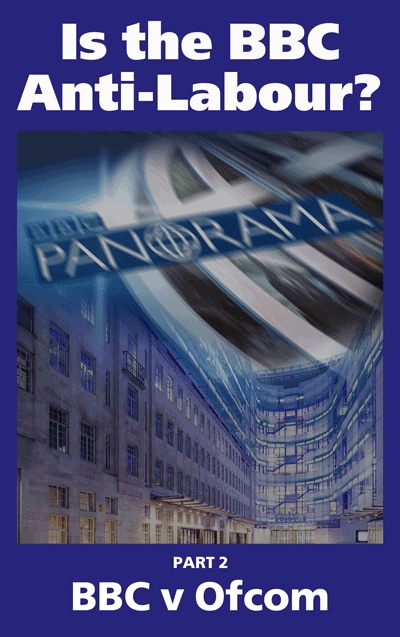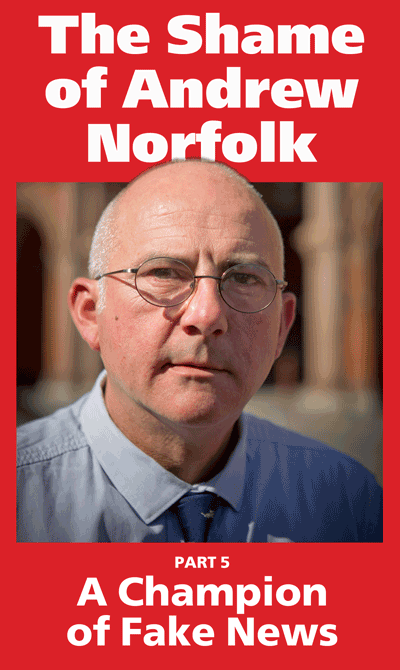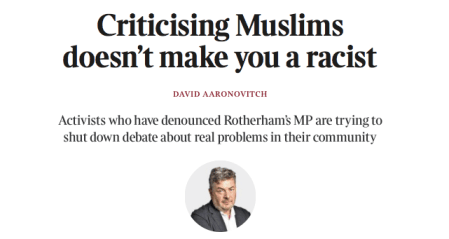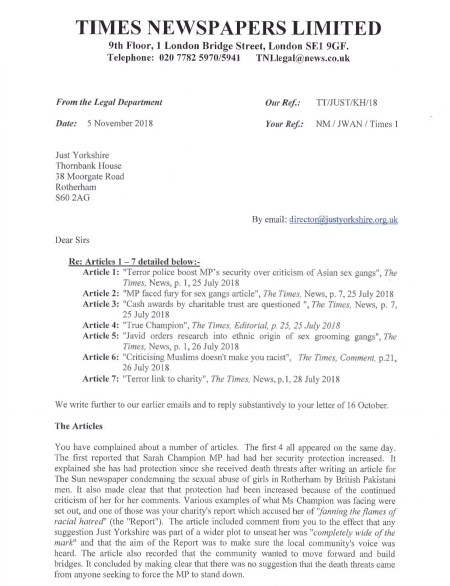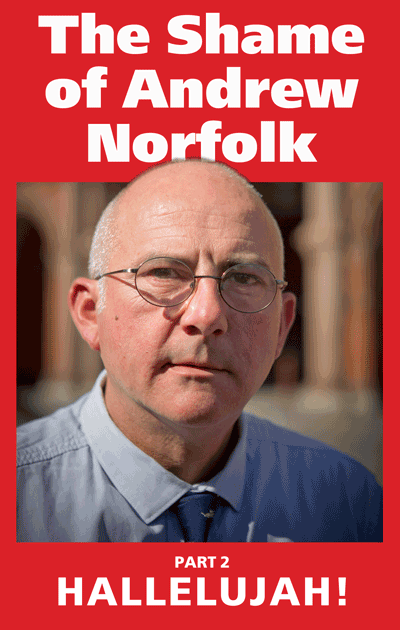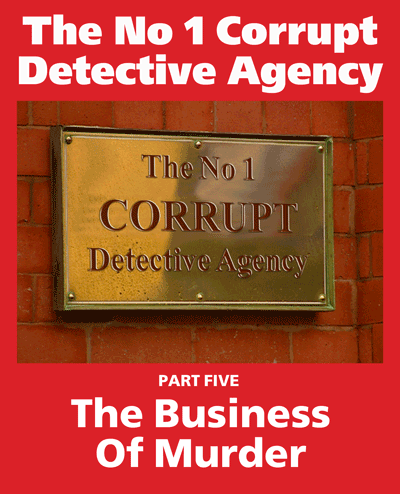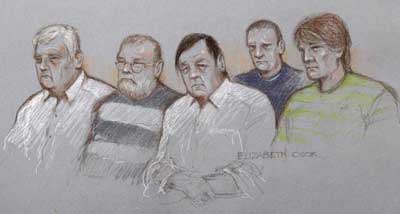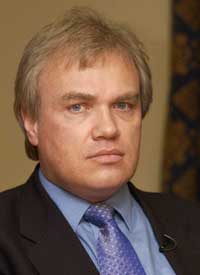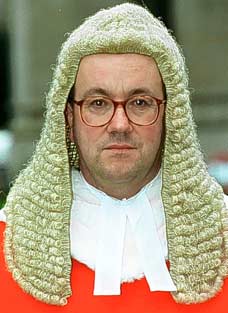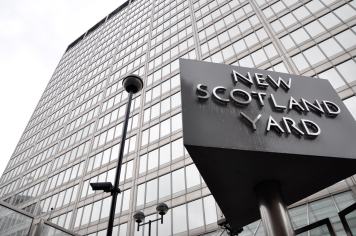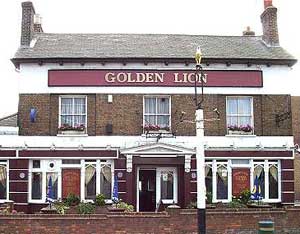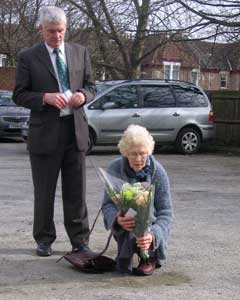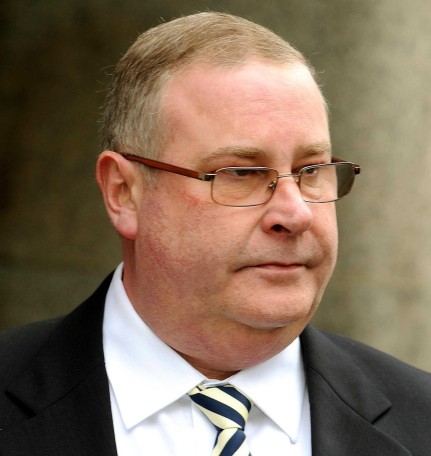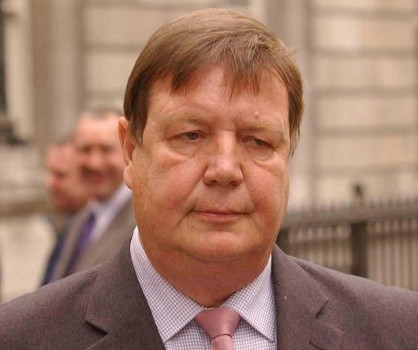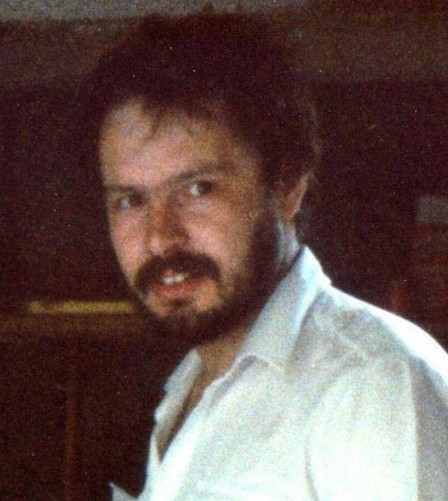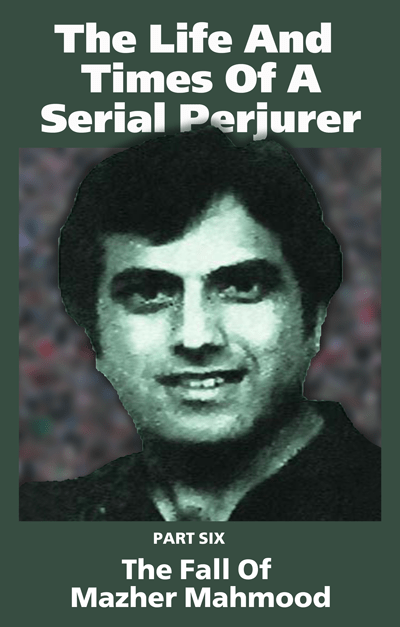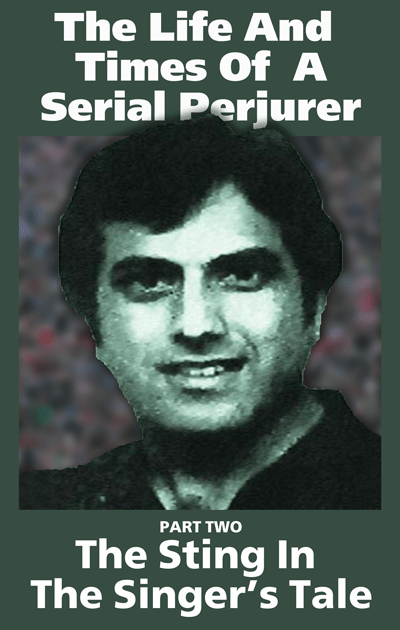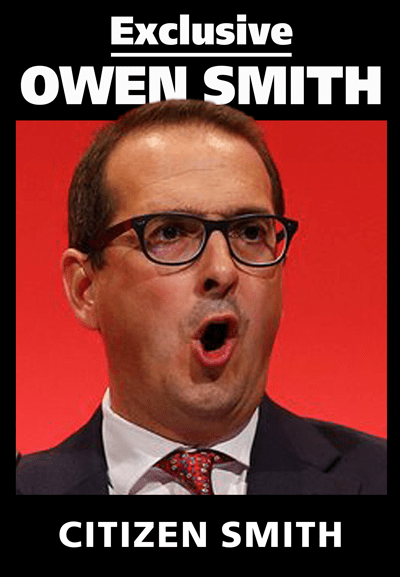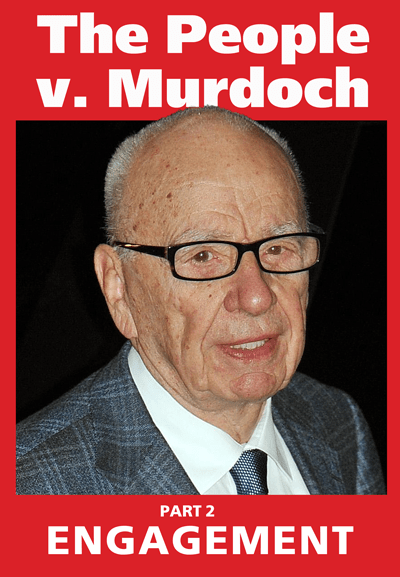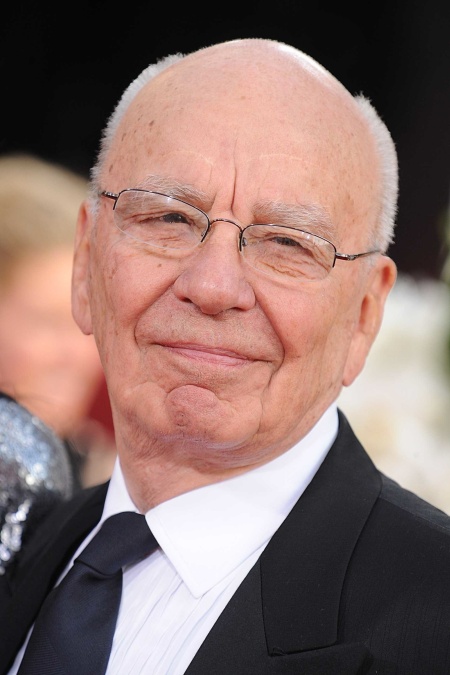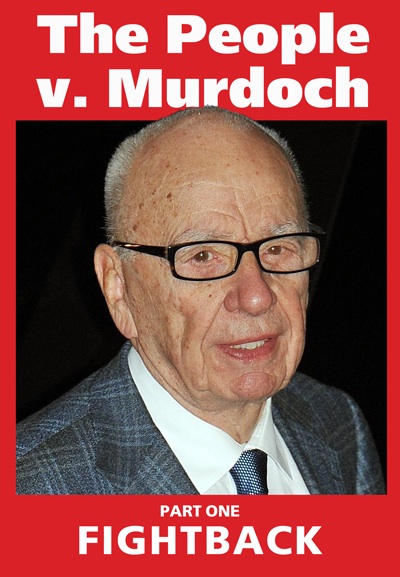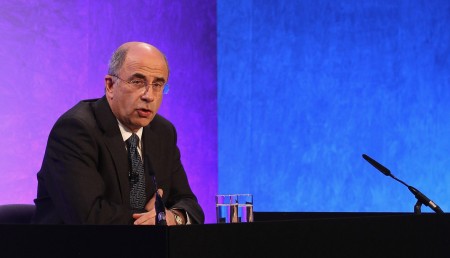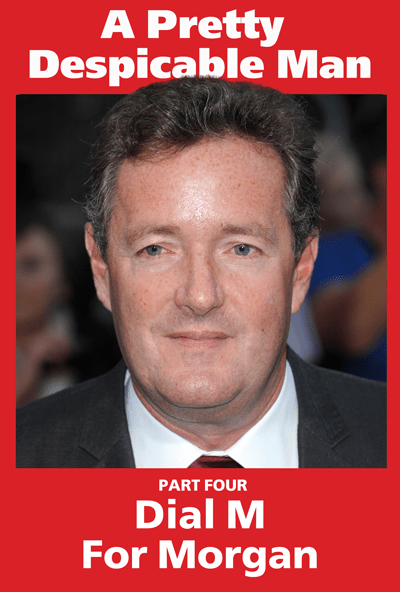
IN JULY last year the BBC broadcast an edition of Panorama on the alleged anti-Semitism crisis in the Labour Party.
Labour branded the programme an “authored polemic” by reporter John Ware.
And condemned the broadcast as “an overtly one-sided intervention in political controversy by the BBC”.
The BBC defended Panorama: “… we completely reject any accusations of bias or dishonesty”.
The party submitted a long complaint to the BBC about the programme.
The Corporation rejected it.
Labour could have escalated the complaint to the broadcasting watchdog, Ofcom.
However, a Labour spokesman would not tell Press Gang if the party have done so.
We suspect it has not.
A Press Gang investigation — published in December, just before the election — found in favour of Labour.
We concluded the edition of Panorama was biased and dishonest — it was “rogue journalism”.
See the panel (right) for more details.

BIAS
OUR INVESTIGATION into the Panorama programme was published on December 7 last year — five days before the general election.
Although it was an interim report, it found ten possible breaches of the BBC’s own Editorial Guidelines.
We found Panorama guilty on nine counts and cleared it of one.
The programme broke the key BBC commitment to “achieving due impartiality”.
And failed to honour the BBC promise not to “knowingly and materially mislead its audiences.”
The BBC, of course, rejects these criticisms while Ofcom, the broadcasting watchdog which regulates the Corporation, declined to investigate.
The Press Gang investigation continues …
The BBC also rejected complaints from viewers that Panorama had broken its rules on impartiality and fairness.
Some of these complainants did appeal the BBC’s decision to the broadcasting regulator, Ofcom.
At the end of December, Ofcom decided not to investigate any of these complaints.
It did not explain why.
Now, one of the complainants — the academic Justin Schlosberg, former chairman of the Media Reform Coalition — has successfully crowdfunded £25,000 to take Ofcom to a judicial review.
Press Gang contributed to this campaign.
But more is going to be needed.
Since Ofcom will contest the case — and may be joined by the BBC — the legal costs are going to be high.
Another crowdfunding effort will be needed in the near future.
Press Gang believes Ofcom’s decision will not survive serious judicial examination.
This issue will be explored in the next article — Ofcom Waives The Rules.
Meanwhile, more evidence is emerging of bias among the Panorama team.
In this article we examine some of the filming, editing and scripting techniques used to buttress the editorial bias of the programme.
The BBC declined to provide a full script — so Press Gang prepared its own.
This is attached, see below.
Stripped to its bare bones, the script reveals techniques designed to convince viewers they were watching an impartial investigation.
In fact, what they were seeing was anti-Labour propaganda …
♦♦♦
THE PROGRAMME starts with a “tease” — a short introduction to the broadcast.
This is designed to “hook” the viewer with a selection of the most dramatic moments from the programme.
The Panorama tease is two minutes and five seconds long.
It has four elements:
— first, it claims there’s a “constant stream” of anti-Semitism complaints from Jewish members of the Labour Party
— second, it says “former Labour Party insiders” have broken their silence on Jeremy Corbyn’s “failure to drive out anti-Semitism”
— third, it presents new evidence that contradicts the leadership’s statements on the issue and
— fourth, it dramatically asks if Jeremy Corbyn, himself, is an anti-Semite.

ANTI-CORBYN
PANORAMA REPORTER John Ware is an open critic of Jeremy Corbyn. In an article for the magazine Standpoint in June 2017 he said the Labour leader’s “… entire political career has been stimulated by disdain for the West, appeasement of extremism, and who would barely understand what fighting for the revival of British values is really all about”. The BBC Editorial Guideline 4.3.11 states: “Our audiences should not be able to tell from BBC output the personal opinions of our journalists or news and current affairs presenters on matters of public policy, political or industrial controversy …”
Photo: BBC
The first element is illustrated by the testimony of two Jewish members of the Labour Party.
Neither is named.
Viewers will have assumed they are ordinary Jewish party members.
After the programme, online journalists revealed their identities — and that both are leading members of Jewish groups opposed to Jeremy Corbyn’s leadership.
They are Ella Rose and Adam Langleben.
Ella Rose is a leading figure in the Jewish Labour Movement (JLM).
The JLM was opposed to Jeremy Corbyn even before he became leader in 2015 — and before the allegations of an anti-Semitism problem began to emerge.
In the first leadership contest, JLM endorsed Yvette Cooper — in the second, Owen Smith.
In 2015, shortly after Jeremy Corbyn became Leader, Ella Rose went to work at the Israeli Embassy in London.
Her job was described as a Public Affairs Officer.
At the Embassy she met Shai Masot, a Senior Political Officer.
In January 2017 Al Jazeera broadcast a sensational series called “The Lobby” revealing Israel’s clandestine attempts to influence British politics.
It featured both Masot and Rose.
Shai Masot was filmed trying to “take down” then Tory Foreign Office Minister Sir Alan Duncan.
Duncan is an outspoken critic of Israel’s treatment of the Palestinians.
In the wake of the programme, Israeli Ambassador Mark Regev was forced to apologise.
It was not, he insisted, official Israel policy to “take down” British government ministers.
Masot was sacked and sent home in apparent disgrace.
Ella Rose also featured in the programme.
She had left the left the Israeli Embassy to become the first full-time Director of the Jewish Labour Movement.
It was in this role that Al Jazeera’s undercover reporter caught her boasting that she could “take” down the Labour activist Jackie Walker using martial arts techniques developed by the Israeli army.

Jackie Walker is a Jewish Labour member who opposes Israel’s policies towards the Palestinians.
Rose was reprimanded by the Labour Party for her conduct.
Panorama did not mention this in the programme.
By the time of the Panorama broadcast, Rose had stepped down from her role as full-time director of the Jewish Labour Movement.
She is now its Equalities Officer.
The second testimony came from Adam Langleben, a former campaigns officer for the Jewish Labour Movement.
He tells viewers
… it’s been soul destroying being a member of the Labour Party and Jewish.
Langleben left the party in February 2019.
He is also a prominent figure in the Jewish Leadership Council.
The Council is a charity which claims to bring together “the major Jewish organisations” in the UK.
Among its constituent members are the Board of Deputies of British Jews and the Zionist Federation of Great Britain.
In July 2019, at the time of the Panorama broadcast, Langleben was described as ‘Head of Digital and Shareholder Engagement’.
A month after programme went out, he became ‘Head of Communications and Political Adviser’.
Panorama did not inform viewers that Rose and Langleben — apparently ordinary Jewish Labour Party members — were also senior figures in pro-Israeli pressure groups opposed to Jeremy Corbyn’s leadership.
There is another unusual aspect in the programme’s treatment of Rose and Langleben.
Normally, the tease includes material which is then repeated in the main body of the programme.
But Rose and Langleben never reappear.
One reason for this may lie in the fact that their testimony is echoed by a further eight, anonymised witnesses.
As with Rose and Langleben, these additional eight witnesses are also unnamed by Panorama although one gives her name in the interview.
All but one are Jewish.
All are allowed to give their evidence direct to the camera.
Again, all were later identified by internet journalists.
Seven of them are, like Rose and Langleben, current or former officers of the Jewish Labour Movement.
The eighth, Phil Rosenberg, is the Director of Public Affairs at the Board of Deputies, a Jewish religious group opposed to Jeremy Corbyn’s leadership.
He would not tell Press Gang if he is also a member of the Jewish labour Movement.
There is a final twist to the saga of Panorama’s anonymous witnesses.
It is possible to remove the testimonies of all ten — and not affect the programme’s narrative.
It is also possible to shuffle the ten interviews and insert them randomly back into the programme — again, without affecting the narrative in any way.
♦♦♦
ELLA ROSE is given star billing in the Panorama programme.
In an extended, 59 minute broadcast which was widely promoted across the BBC.
For 45 seconds, at nine o’clock on a Wednesday evening, she’s allowed to address the nation.
Directly.

VICTIM
ELLA ROSE giving evidence directly to the camera about her experience of anti-Semitism. Panorama was silent about her threat to “take” down the Jewish activist Jackie Walker using hand to hand combat techniques developed by the Israeli military. Rose was caught making the threat by an Al Jazeera undercover documentary broadcast in January 2017. She was given a warning by the Labour Party.
Photo: BBC
Unchallenged.
Her testimony is given immense additional weight by a series of filming and editing techniques.
The Panorama programme opens with a black screen.
A second later, sombre music is heard as Rose appears, looking directly at the camera.
Then the BBC logo is superimposed.
Rose is briefly silent but, four seconds in, we hear her say the words:
I joined the Labour Party because of my Jewish values and because of the things that I was taught in my family and in my synagogue.
After this — at 11 seconds — the screen fades to black.
Two seconds later, Rose is back, this time speaking directly to the camera:
I’ve been the unfortunate victim of a lot of anti-Semitism within the Labour Party and stuff I never thought I’ve receive in 2019 let alone in the Party that I thought was anti-racist.
This ends at 24 seconds with the camera again fading to black.
This device — fading to black — is an editing tool designed to provide a visual pause to emphasise the words that have just been spoken.
The screen remains black for more than two seconds.
The viewer then sees Rose silently looking at the camera.
This time we only hear her say:
Whilst leafleting at a party conference someone came up and screamed abuse in my face.
At 33 seconds, the screen cuts to a close up of Rose.
There’s a brief pause.
She’s still looking at the camera when the viewer hears her say:
I wouldn’t say to a friend …
At this point the camera briefly fades to black.
She continues:
… go to a Labour …
At 38 seconds, she’s back in vision, talking directly to the camera:
… Party meeting if you are Jewish. I couldn’t do that to someone I cared about.
Her contribution ends with two seconds of her silently nodding.
She appears close to tears.
Her sequence ends 45 seconds after the programme began.
This technique of allowing an interviewee to give evidence directly to the camera is highly unusual in current affairs broadcasting.
Normally, it’s a technique used in documentaries where the testimony is accepted by journalists and historians as being truthful.
Programmes about the Holocaust, for example, often feature survivors giving harrowing testimonies direct to the camera.
In the Panorama programme, Ella Rose is treated as if she is a proven survivor of anti-Semitism in the Labour Party.
But, in British current affairs television, where impartiality is supposed to be sacrosanct, Rose’s evidence should have been tested.

ZIONISTS
ELLA ROSE poses with her friend Izzy Lenga in a photo posted on Twitter in July 2018. In this version, the photo has been edited — the full logo is “Zionist Shitlords”. Izzy Lenga is another Jewish Labour Movement member who appears in the Panorama broadcast. Although not named by the programme either on screen or in commentary, she gives her full name during her interview.
And, especially when the subject is controversial and a general election is likely.
Reporter John Ware should have asked her
— where is the evidence of the anti-Semitism you describe?
— who is the person who screamed abuse at you at the party conference?
— did you make a complaint to the party about this person and, if so, what was the result?
— you are a Zionist who worked for the Israeli Embassy before becoming Director of the anti-Corbyn Jewish Labour Movement. Are you exaggerating the extent of anti-Semitism in order to discredit Jeremy Corbyn because he is seen as a major threat to Israel’s policies towards the Palestinians?
None of these questions are asked.
John Ware abdicates the role of an impartial reporter.
He allows a partisan witness to give unchallenged testimony.
♦♦♦
THE TEASE also seeks to damage Jeremy Corbyn and the Labour Party right at the start of the programme.
John Ware deploys the technique of asking questions and combining them with statements which leave the viewer with only one realistic answer.
At 1.13, he talks of “Mr Corbyn’s failure to drive out anti-Semitism”.
This is stated as fact.
At 1.31 Ware says he has evidence “that contradicts what the party leadership has said in public”.
At 1.47 Jeremy Corbyn is allowed to say:
The idea that I’m some kind of racist or anti-Semitic person is beyond appalling, disgusting, and deeply offensive.
This is followed, at 1.56, by Ware asking former Labour Party staffer Mike Creighton if he thinks Jeremy Corbyn is anti-Semitic.
Creighton says:
… it’s still a question I struggle with.
This is then followed by the main programme titles:
Is Labour Anti-Semitic?
Ware and Panorama have set out their stall:
— anti-semitism is rife in the Labour Party
— Jeremy Corbyn has failed to stamp it out
— his team are potentially lying about the issue and
— a former Labour official says he can’t rule out that Corbyn is anti-Semitic.
Ware and Panorama take up 92 per cent of the tease to establish their argument.
Jeremy Corbyn gets nine seconds to argue against.
Who is the average viewer going to believe?
Throughout the rest of the programme, Panorama uses editing techniques to further undermine Jeremy Corbyn and the Labour Party.
At 17.12, for example, we see footage of Jeremy Corbyn which has been treated so that it is blurred and grainy.

DOCTORED
FOOTAGE FEATURING Labour Leader was treated by Panorama to produce blurred and grainy images. This technique is used again and again.
Photo: BBC
This follows John Ware saying that anti-Semitism complaints “were growing and beginning to seriously undermine the party’s anti-racist credentials”.
This technique is used again and again, often accompanied by sombre music.
The subliminal message is that there’s something sinister going on.
At 37.40 John Ware is talking about alleged attempts by Jeremy Corbyn to influence decisions on anti-Semitism cases.
To go with Ware’s commentary, we see a night sky showing the moon.
This cuts to a blurred traffic shot taken through the bars of what appear to be a set of railings.
There’s sombre music throughout.
Here, the subliminal message is that something dark and shady is going on.
The same techniques are used whenever the Labour Party comments on John Ware’s allegations.
These statements are shown against a background of blurred night-time traffic.
However, there’s an extra twist when it comes to the woman Panorama chooses to voice these comments
The programme does not say who she is.
Her accent suggests she’s of British-Asian heritage.
Why did Panorama choose this person?
A conventional British accent would have been just as appropriate.
There are many ethnicities in Labour’s membership but the majority are of white British heritage.
Was Panorama trying to plant the idea that Labour is more sympathetic to Muslims than Jews?
♦♦♦
THIS IS an initial assessment of the editing and scripting techniques used in the programme.
Future articles will examine these in more detail.
The full script follows the Right of Reply section.
This is the fourth instalment of the series Is The BBC Anti-Labour?
The previous three articles are
— an introductory article: it can be found here
— the second, BBC v Ofcom, is here
— article three, Indictment, is here
In addition, an interim report has been published. It’s available here.
♦♦♦
Notes
1
Press Gang editor Paddy French declares an interest in this issue. A life-long Labour voter, he joined the party when Jeremy Corbyn was elected Leader.
2
The ten anonymous witnesses were identified by online websites including The Canary, Electronic Intifada, Vox Political and Jewish Voice for Labour.
♦♦♦
Published: 21 February 2020
© Press Gang
♦♦♦
♦♦♦
CORRECTIONS Please let us know if there are any mistakes in this article — they’ll be corrected as soon as possible.
RIGHT OF REPLY If you have been mentioned in this article and disagree with it, please let us have your comments. Provided your response is not defamatory we’ll add it to the article.
♦♦♦
PANORAMA
“IS LABOUR ANTI-SEMITIC?”
Wednesday, 10 July 2019
9pm
59 mins
NOTES
1
This is the fourth instalment of the series Is The BBC Anti-Labour?
The previous three articles are
— the opening article can be found here
— the second, BBC v Ofcom, is here
— article three, Indictment, is here
In addition, an interim report has been published. It’s available here.
2
The BBC declined to provide a script of the programme. Press Gang prepared this one from the iPlayer version of the broadcast. This is still available:
https://www.bbc.co.uk/programmes/m0006p8c
However, it will be removed from iPlayer in July.
2
This script is annotated:
— comments in black square brackets are based on information provided in the programme
— comments in red square brackets are based on information acquired after the programme was broadcast. Press Gang believes Panorama knew this information but decided not to share it with viewers.
3
Where an interviewee is marked ANONYMOUS, it means Panorama does not name them either on screen or in reporter John Ware’s commentary. There are ten of these interviews. One interviewee names herself and another gives her first name.
4
SYNC means pictures and sound are combined: reporter / interviewees can be seen talking.
5
V/O means voice over pictures. The voice is mostly from reporter John Ware, an interviewee or the spokeswoman for the Labour Party.
6
FTB means “fade to black”: a device where the picture on screen dissolves to a completely black screen for a few seconds.
7
CTB means “cut to black” — a picture cuts directly to a black screen, without dissolving.
8
ACTUALITY means archive film of an event or an interview which has already taken place. That is, it was not filmed for this edition of Panorama.
9
The Jewish Labour Movement (JLM) is a major influence in this programme but is, in fact, never mentioned. At least ten of the 21 interviewees is, or has been, a member or an official of this long-established campaign group. Established as Poale Zion in 1903, it changed its name in 2004. Affiliated to the Labour Party, it accepts Jews and non-Jews as members. It is opposed to Jeremy Corbyn’s leadership — in the 2015 leadership election it supported Yvette Cooper. In the 2016 contest it backed Owen Smith. In November 2018 the group asked the Equality and Human Rights Commission (EHRC) to investigate the Labour Party which it said was “institutionally racist”. In April 2019 it decided to remain affiliated to Labour but passed a motion of no confidence in Jeremy Corbyn over his alleged mishandling of the anti-Semitism issue.
10
The photographs which illustrate the script are taken from the iPlayer version of the programme and are, therefore, the copyright of the BBC.
SCRIPT
TEASE
00.00 – 2.05
00.00 – 00.02
[from black screen, an unnamed young woman fades up, looking directly at the camera, sombre music]
00.03
[BBC logo appears]
00.03
ANONYMOUS
[ELLA ROSE
Ex-employee, Israel Embassy in London before becoming full-time Director of Jewish Labour Movement (JLM). She is currently JLM’s Equalities Officer. She now works for the Holocaust Educational Trust as Public Affairs Manager]

[V/O — voice over]
[Ella Rose looking directly at camera]
“I joined the Labour Party because of my Jewish values and because of the things that I was taught in my family and in my synagogue.”
00.11
[FTB — fade to black]
00.13
[SYNC]
“I’ve been the unfortunate victim of a lot of anti-Semitism within the Labour Party and stuff I never thought I’ve receive in 2019 let alone in the Party that I thought was anti-racist.”
00.24
[FTB]
00.26
[V/O] [Ella Rose looking at the camera]
“Whilst leafleting at a party conference someone came up and screamed abuse in my face.”
00.33
[V/O] [close up of Ella Rose looking at the camera]
00.35
“I wouldn’t say to a friend …”
00.36
FTB
“… go to a Labour …”
00.38
[SYNC]
“… Party meeting if you are Jewish. I couldn’t do that to someone I cared about.”
00.44
[nodding, looking upset]
00.46 – 00.58
REPORTER: JOHN WARE
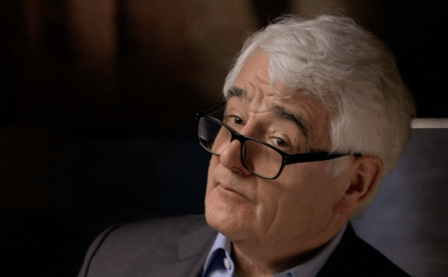
[V/O]
[over shots of 4 people all, like Ella Rose, looking directly at the camera. The background is the same for all ten anonymised interviewees]
“Labour says anti-racism is at its very core. Why, then, is there a constant stream of anti-Semitism complaints by party members?”
00.46 ANONYMOUS
[ALEX RICHARDSON
Formerly worked for Joan Ryan, ex-Labour MP, Enfield North. He’s currently Membership Officer for Jewish Labour Movement]

00.49 ANONYMOUS
[REBECCA FILER
Formerly Jewish Labour Movement’s Political Education Officer]
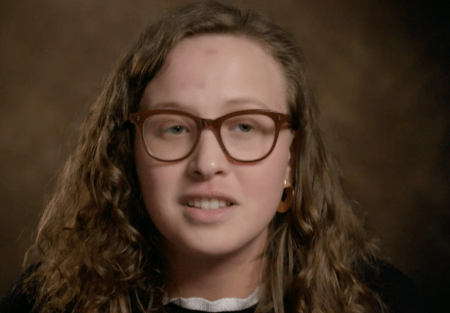
00.52 ANONYMOUS
[STEPHANE SAVARY
Currently a National Vice Chair, Jewish Labour Movement]
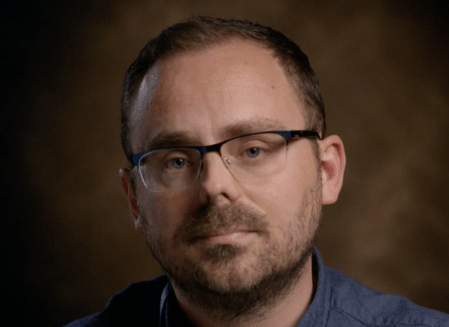
00.55 ANONYMOUS
[later self-identified as IZZY LENGA
Currently International Officer, Jewish Labour Movement]
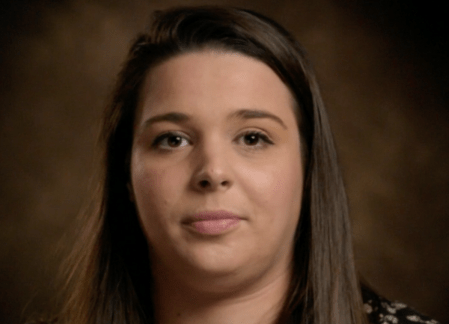
00.58
FTB
00.59
ANONYMOUS
[ADAM LANGLEBEN
Ex-Campaigns Officer for Jewish Labour Movement, ex-Labour councillor, Barnet. Now Head of Communications for the Jewish Leadership Council]
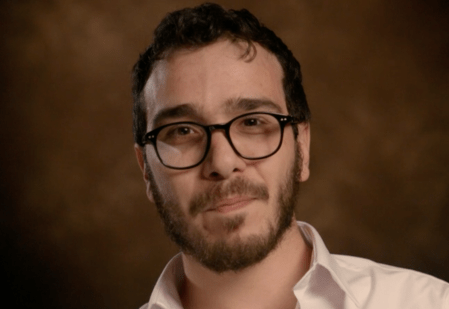 [SYNC]
[SYNC]
“Since 2015 it’s been soul-destroying being a member of the Labour Party and Jewish.”
1.03
FTB
1.04
[SYNC]
“Jewish members across the Labour Party have, don’t know what to do. No one knows what to do …”
1.13
REPORTER: JOHN WARE
[V/O]
[over pix of 5 people, none of whom are identified at this point]
“Tonight eight former Labour insiders break their silence on Mr Corbyn’s failure to drive out anti-Semitism.”
1.13
MARTHA ROBINSON
[later captioned as Administrator, Disputes Team 2018-2019]

1.15
DAN HOGAN
[later captioned as Investigator, Disputes Team 2016-2018]
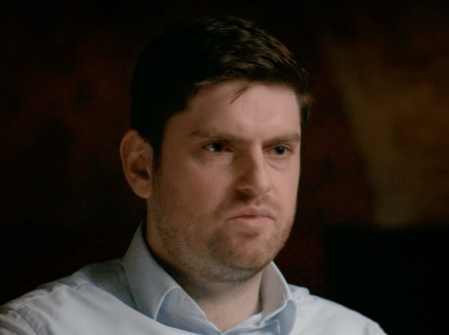
1.16
BEN WESTERMAN
[later captioned as Investigator, Disputes Team 2016-2017]
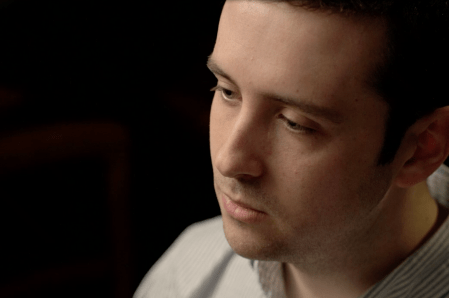
1.18
MIKE CREIGHTON
[later captioned as Director, Disputes Team 2009-2017]
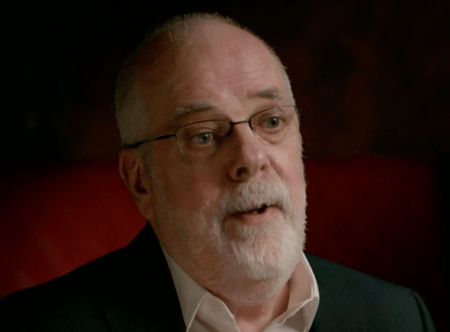
1.21
LOUISE WITHERS GREEN
[later captioned as Officer, Disputes Team 2017-2018]

1.22
SAM MATTHEWS
[later captioned as Chief Investigator, Disputes Team 2017-2018]

[SYNC]
“I am heartbroken and disgusted that the party I joined over a decade ago is now institutionally racist.”
1.31
REPORTER: JOHN WARE
[V/O] [actuality of Jeremy Corbyn at conference]
“We also reveal new evidence that contradicts what the party leadership has said in public.”
1.37
LORD (IAIN) McNICOL
[later captioned as: Lord McNicol
Labour General Secretary 2011-2018]
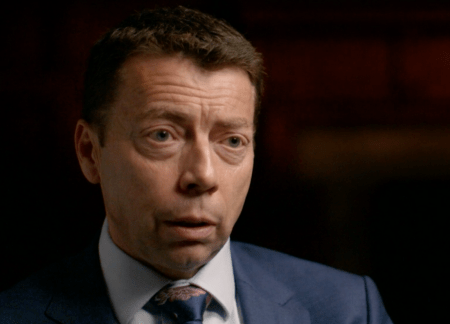
[SYNC]
“The emails that you have shown me you are really important.”
1.41
[cut to different camera angle]
[SYNC]
“The issues that are raised within them should ring alarm bells …”
1.43
[V/O] [cut to John Ware looking at Mike Creighton]
1.45
[SYNC]
“… across the party.”
1.47
ACTUALITY
[no caption, but R4 World at One seen on the background]
JEREMY CORBYN
[SYNC]
“The idea that I’m some kind of racist or anti-Semitic person is beyond appalling, disgusting and deeply offensive.”
1.56
REPORTER: JOHN WARE
[V/O]
[over a shot of Mike Creighton, camera slowly zooming in]
“Do you think Mr Corbyn …”
[SYNC]
“… is anti-Semitic?”
2.00
MIKE CREIGHTON
[SYNC]
“It’s still a question I struggle with.”
2.02
FTB
2.04
[Aerials of Parliament, music with drumbeats]
2.05
TITLES
IS LABOUR ANTI-SEMITIC?
2.09
REPORTER: JOHN WARE
2.14
ACTUALITY
[Demo outside Parliament — crowd shouting “shame on you, shame on you”]
2.21
[V/O]
[over more shots of the demo]
REPORTER: JOHN WARE
“Many British Jews once saw the Labour Party as their natural political home. No longer.”
2.28
ACTUALITY
[Captioned: Luciana Berger MP, 26 March 2018]
LUCIANA BERGER
“Being a bystander who turns their head the other way is not an option. The time for action is now.”
2.36
REPORTER: JOHN WARE
[V/O] [more pictures of the demo]
“They say they are being pushed out of Labour by a left-wing version of the world’s oldest form of racism.”
2.45
DAVE RICH
[Captioned: Dave Rich
Author: The Left’s Jewish Problem]
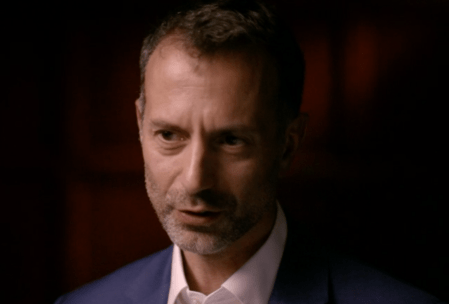
[SYNC]
“Anti-Semitism is prejudice or hostility towards Jewish people. It’s anti-Jewish racism.”
2.52
[cut to John Ware listening]
[V/O]
“All based on a general suspicion …”
2.55
[SYNC]
“… that you can’t trust Jewish people that they are always up to something …
[cut to close-up of Rich]
2.59
“… and it’s usually got something to do with money or with power or with influence.”
3.04
[Aerials of Parliament, sombre music]
3.08
REPORTER: JOHN WARE
[V/O]
“Labour’s anti-Semitism crisis burst into the open in April 2016 with a row in Westminster.”
3.17
ACTUALITY
[John Mann, MP “doorstepping” Ken Livingstone.]
JOHN MANN
[Labour MP for Bassetlaw until he resigned his seat in October 2019. Created a peer by Theresa May and currently the Tory government’s “independent” adviser on anti-Semitism]
“A Nazi apologist.”
KEN LIVINGSTONE
“Check your history.”
JOHN MANN
“You’re a Nazi apologist. You’re a disgusting Nazi apologist, Livingstone.”
3.24
REPORTER: JOHN WARE
[V/O]
“The former mayor of London, Ken Livingstone, has a history of false claims that Jews were in cahoots with Nazis in establishing Israel.”
3.35
ACTUALITY
[blurred traffic]
[Captioned: Ken Livingstone, BBC Radio London, 28 April 2016]
KEN LIVINGSTONE
[V/O]
“Let’s remember when Hitler won his his election in 1932 …”
[Cut to unblurred London traffic]
“… his policy then was that Jews should be moved to Israel.”
3.44
[cut to different interview, captioned 30 March 2017]
[SYNC]
“So you had right up until the start of the Second World War real collaboration and everyone who studies history just knows this is true.”
3.52
REPORTER: JOHN WARE
[V/O] [over blurred London traffic]
“In fact, what historians know is that this is a gross misreading of history — one that’s deeply offensive to Jews.”
4.01
[External views of Southside, Labour HQ, London]
4.02
REPORTER: JOHN WARE
[V/O]
“Inside Labour’s London headquarters — called Southside — were the Disputes Team who police the party’s rulebook.”
4.10
[shot change to Mike Creighton, side angle camera]
“Mike Creighton was in overall charge.”
4.12
MIKE CREIGHTON
[Captioned: Director, Disputes Team 2009-2017]
“People were going ballistic all over the place about about what Ken had said because, you know, he’s a repeat offender, really.”
4.22
REPORTER: JOHN WARE
[SYNC] [shot over Mike Creighton’s shoulder to John Ware]
“What do you mean, a repeat offender? What do you mean by that?”
4.25
MIKE CREIGHTON
[SYNC] [different camera angle]
“Well, it’s not the first time that he’s been called out.”
4.28
REPORTER: JOHN WARE
[V/O] [over shot of Kat Buckingham listening]
“Kat Buckingham was the disputes team’s chief investigator. She had to respond to what Mr Livingstone — one of Mr Corbyn’s closest colleagues — had said.”
4.40
KAT BUCKINGHAM
[V/O]
[shot of Ware listening]
4.42
“I had prepared a suspension letter and …”
[Captioned: Kat Buckingham, Chief Investigator, Disputes Team 2015-2017]
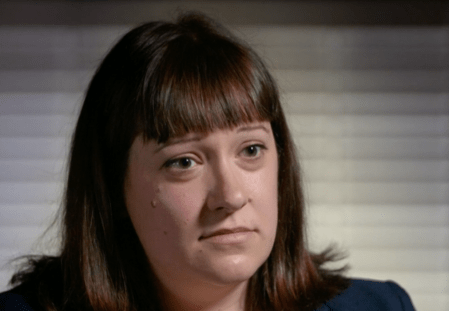
[SYNC]
“… was sitting waiting to get it sent, to get it signed off and to get it sent.”
4.48 [camera angle changes]
“As the hours went by … it just still didn’t get the go, didn’t get the sign-off and I couldn’t understand why — it seemed obvious to me that this is what we would be doing.”
4.57
[blurred shots of pedestrians]
4.59
REPORTER: JOHN WARE
[V/O]
“In Mr Corbyn’s office, we’ve been told, …”
5.01
[SYNC] [Ware standing outside Labour HQ]
“… some staff grinned as they watched news of what Ken Livingstone had said. Most thought his comments not that bad. We’ve also been told a key Corbyn advisor was heard referring to “a Jewish conspiracy” behind the growing demands for Mr Livingstone’s suspension.”
5.21
REPORTER: JOHN WARE
[V/O] [blurred traffic shots]
“The Labour Party say this account is completely false.”
5.26
ACTUALITY
[Captioned: 28 April 2016]
JOHN MANN, MP
“You know nothing about it, you know nothing about what Hitler did in …”
5.30
REPORTER: JOHN WARE
[V/O] [over shots of John Mann confronting Ken Livingstone]
“Labour MP John Mann laid into Ken Livingstone for his crank history. It was the first of Labour’s many public car crashes over anti-Semitism.”
5.40
ACTUALITY
[John Mann confronting Ken Livingstone.]
JOHN MANN
“You’ve lost it mate! You need help!”
5.43
[shots of Southside at night, sombre music]
5.45
REPORTER: JOHN WARE
[V/O]
“Mr Livingstone was invited to attend a formal interview with the Disputes Team at party HQ.”
5.52
REPORTER: JOHN WARE
[V/O] [over Labour HQ shots and
“Did you get the sense that he was taking it seriously?”
5.54
KAT BUCKINGHAM
[V/O]
“Not at all.
[SYNC]
“He signed the sign-in book at the party as ‘visiting the torture chamber’.”
6.01
[cut to John Ware listening, nodding]
[V/O]
“He had the opportunity to …”
[SYNC]
“…express regret, should he have felt regret…”
6.07
REPORTER: JOHN WARE
[V/O]
“Did he?”
6.09
KAT BUCKINGHAM
[SYNC]
“No, he was extremely careful to not apologise for any of the statements that he had repeatedly made.”
6.19
REPORTER: JOHN WARE
[V/O] [grainy shots of Livingstone walking down the street]
“A year later Ken Livingstone was brought before Labour’s highest disciplinary body the national constitutional committee or NCC. The charge — bringing the party into disrepute.”
6.35
REPORTER: JOHN WARE
[V/O] [shot of Sam Matthews followed by another camera angle of Matthews]
“By then there was a new chief investigator, Sam Matthews. He saw the Livingstone case as a Litmus test.”
6.44
REPORTER: JOHN WARE
[SYNC]
“Ken Livingstone was given a two years suspension by the NCC.”
[V/O] [cut to Matthews listening]
“Did you think that was a fitting …”
[SYNC]
“… penalty for what he’d said?
6.52
SAM MATTHEWS
“No, not at all …”
[Captioned: Sam Matthews, Chief Investigator, Disputes Team 2017-2018]
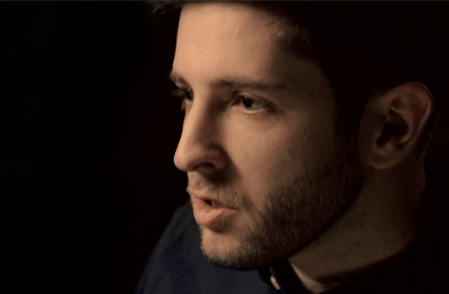
REPORTER: JOHN WARE
6.54
[V/O]
“Why?”
6.57
SAM MATTHEWS
[SYNC]
“What the NCC did in finding the charges proven but giving a two-year suspension was essentially saying yes, we acknowledge that what you said is anti-Semitic: we just don’t care that much — you can be back in within two years. That’s an outrage. That’s not zero tolerance, it’s not even close to …”
7.16
[cut to John Ware listening]
[V/O]
“… zero tolerance. These views …”
[SYNC]
“… have absolutely no place in the Labour Party, whoever says them.”
7.22
FTB
7.23
REPORTER: JOHN WARE
[V/O] [Andrew Gwynne, MP walking into the room to be interviewed]
“Jeremy Corbyn refused to be interviewed for this programme. The shadow Communities Secretary Andrew Gwynne was sent in his place.”
7.34
REPORTER: JOHN WARE
[SYNC]
“All of our questions have been directed to the leader of the Labour Party and key advisers in his office. None of whom have agreed to be questioned and you have been sent — why are they not sitting where you’re sitting?”
7.49
ANDREW GWYNNE
[SYNC]
“Well I think it’s important that somebody from the Labour Party …”
7.51
[Captioned: Andrew Gwynne MP, Shadow Secretary Of State For Communities & Local Government]
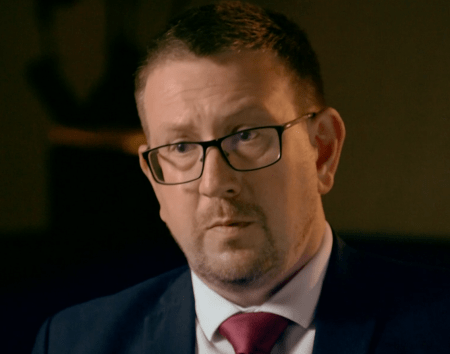
“… is here to make it very clear on behalf of the entire Shadow Cabinet …”
7.58
“… we will do all we can to make it very clear to anybody who thinks that they can have those abhorrent views in our party and in our family that they are not welcome.
FTB
8.10
[Visuals of a full moon with clouds either side, sombre music]
8.14
FTB
8.15
IZZY LENGA
[V/O] [woman, looking directly at the camera]
 “I’m Izzy Lenga. I joined the Labour Party in 2015.”
“I’m Izzy Lenga. I joined the Labour Party in 2015.”
FTB
8.21
[V/O] [Izzy Lenga nodding ]
“The anti-Semitic abuse I received was what I was subjected to every single day.”
8.25
FTB
[SYNC]
“Telling me Hitler was right, telling me Hitler did not go far enough.”
8.30
FTB
[V/O] [shots of her looking directly at camera]
“In Labour Party meetings we’ve seen people engage in Holocaust denial and that’s terrifying for Jewish members.”
8.37
FTB
8.39
[SYNC]
“It absolutely breaks my heart to say but I do not think the Labour Party is a safe space for Jewish people any more.”
8.45
FTB
8.47
ACTUALITY
[Labour leadership election, 12 September 2015]
“Jeremy Corbyn has won more than 50% of the votes cast in this round and I’m therefore delighted to declare Jeremy Corbyn elected as Leader of the Labour Party.”
8.58
REPORTER: JOHN WARE
[V/O] [shots of Jeremy Corbyn winning Labour Leadership]
“Before Jeremy Corbyn was elected Labour leader in 2015, complaints in the party about anti-Semitism were rare.”
9.09
MIKE CREIGHTON
[V/O] [over Labour leadership election meeting]
“Complaints relating to anything were fairly low.”
[SYNC]
“At the time we probably had three, four, five members in that unit but they were mainly dealing with compliance issues.”
9.25
KAT BUCKINGHAM
[V/O] [over shots of Labour leadership election meeting]
“We began …”
9.27
“… when I started that role, having a manageable workload, some serious cases but it was within …”
9.33
[V/O] [over shots of Labour leadership election meeting]
“… my capacity.”
9.37
REPORTER: JOHN WARE
[V/O] [more actuality of Jeremy Corbyn]
“After Mr Corbyn became leader, party membership surged — some attracted by his decades of radical left activism.”
9.46
MIKE CREIGHTON
[SYNC]
“So there was an increase in members from a particular perspective …”
9.49
[switch to different camera angle]
“… and they brought with them a particular world view which unfortunately, allowed breathing space for anti-Semitism to arise.”
9.57
SAM MATTHEWS
[SYNC]
“This is about the creation of a culture within the Labour Party that makes …”
10.03
[shot change]
“… anti-Semites feel that it’s their political home.”
10.06
ACTUALITY
[demonstration
Captioned: Official Jeremy Corbyn Channel, 9 October 2016]
JEREMY CORBYN
10.10
[V/O]
“We want a world where …”
10.12
[SYNC]
“… there is unity and peace not racism, xenophobia, poverty and division. Thank you very much.”
10.21
DAVE RICH
[V/O]
“Many people on the left, they define themselves by being anti-racist.”
10.26
[SYNC]
“And, actually they define the right as being racist.”
10.30
[switch to different camera angle]
“So in their world they can’t be anti-Semitic because they are left-wing.”
10.36
REPORTER: JOHN WARE
[V/O] [Free Palestine demo]
“For Jeremy Corbyn and those who share his worldview, part of being anti-racist is near unconditional support for the Palestinian cause.”
10.47
ACTUALITY
[demonstration, then grainy pictures of Jeremy Corbyn speaking]
[Captioned: 31 May 2010]
JEREMY CORBYN:
“In our thousands, in our millions, we are all Palestinians.”
10.58
REPORTER: JOHN WARE
[V/O]
[Free Palestine demo, banner saying “Israel is a disease, we are the cure”]
“Yet the campaign for Palestinian rights can blind some anti-racists to another kind of racism … against Jews.”
11.07
DAVE RICH
[V/O]
[over demo shots & banner saying “Well done Israel” over Israeli flag with a swastika on it and underneath the words “Hitler would be proud”]
“If you look back at the kind of anti-Semitism …”
11.00
[SYNC]
“… that existed in the 1930s …”
[cut to different camera angle]
“… Jews using their money, Jews controlling governments.”
11.15
[cut to Free Palestine demo]
[V/O]
“Instead you started to see the same ideas being directed towards Israel – these kind of ideas …”
11.23
[SYNC]
“… are much more acceptable on the left and in pro-Palestinian …
[cut to Free Palestine demo shots]
[V/O]
“… campaigning circles because they talk about Israel, they don’t talk about Jews — but actually underneath the surface it’s the same ideas.”
11.38
REPORTER: JOHN WARE
[V/O] [Alan Johnson being interviewed]
“Alan Johnson, a life-long Labour Party member and historian, has campaigned against anti-Semitism on the left the since the 1980s.”
11.47
ALAN JOHNSON
[V/O] [John Ware listening to Johnson]
“It’s completely possible to criticise Israel within the Labour Party and … ”
11.52
[Captioned: Professor Alan Johnson, Author: Contemporary Left Anti-Semitism]
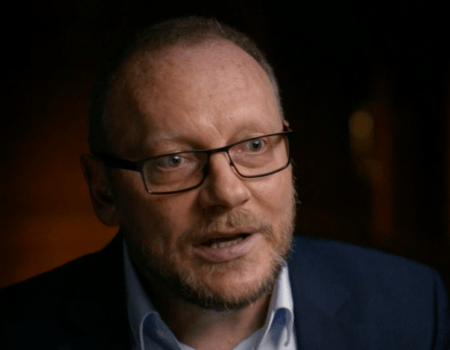
[SYNC]
“… not come near an anti-Semitism charge. You can say the occupation is wrong, you can say the settlements are wrong, …’
[cut to second camera angle]
“… you can say that the treatment of Arab minorities is discriminatory, …”
[cut to main camera angle]
“… but if you say Israel is an inherently racist endeavour — that should therefore be abolished — that’s something different.”
12.07
ACTUALITY
[grainy shots of Jeremy Corbyn at a Free Palestine demo, captioned 10th May 2008]
12.11
REPORTER: JOHN WARE
[V/O]
“Mr Corbyn’s office argues that the idea of peacefully replacing the world’s only Jewish state with a single Israeli-Palestinian one is not anti-Semitic. However, Mr Corbyn has sometimes shared platforms with Palestinian groups like Hamas and its supporters who want Israel to be dismantled — but by force.”
12.31
ACTUALITY
[Speaker saying: “If they deny you life, explode in their faces. It would be jihad, jihad and jihad until Palestine is free. Assalaamu Alaikum”]
12.47
REPORTER: JOHN WARE
[V/O] [still of Jeremy Corbyn]
“Mr Corbyn has said that Hamas represents a future for peace and justice in the Middle East.”
12.56
ACTUALITY
[grainy close-up of Jeremy Corbyn speaking at a rally]
JEREMY CORBYN
“The idea that an organisation that is dedicated towards the good of the Palestinian people should be labelled as a terrorist organisation by the British government is really a big, big historical mistake.”
13.08
FTB
13.08
[Captioned: LABOUR PARTY RESPONSE]
[Woman’s voice, possibly of British Asian heritage, over blurred traffic shots]
“Jeremy has a long and principled record of solidarity with the Palestinian people. It is false to claim that he has associated with extremist groups.”
13.21
[blurred shots of traffic, ominous music]
13.27
ANONYMOUS
[RACHEL MEGAN BAKER.
Currently personal assistant to London Assembly member Onkar Sahota. A non-Jewish member of the Jewish Labour Movement]
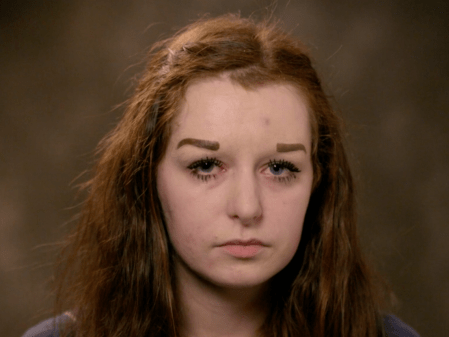
[V/O] [Baker looking at the camera]
“My name is Rachel.”
[SYNC]
“I’ve been a member of the Labour Party since I was 17 so that’s nine years at this point.”
13.31
FTB
[SYNC]
“Obviously, there are some real atrocities being done by the current Israeli government and I’ve seen, yeah, Jewish friends in the Labour Party feel completely held to account for that.”
13.43
FTB
[SYNC]
“You know my Jewish friends will tweet about stuff that is nothing to do with Israel or being Jewish or anything and have responses being like, well ‘what about Palestinians? Don’t do you care about the Palestinians?’ Which of course they do.”
13.57
FTB
[V/O] [Baker looking at the camera]
“Quite frankly my Jewish friends don’t feel safe or welcome in the Labour Party.”
14.05
ACTUALITY
[Labour Party conference, upbeat music]
14.14
[V/O]
REPORTER: JOHN WARE
“All his political life Mr Corbyn’s worldview has been on the fringe of the Labour movement. Now, as leader, that fringe was becoming the mainstream.”
14.26
ACTUALITY
[Labour Party conference, captioned: 29 September 2015]
JEREMY CORBYN
“Welcome all our new members — more than 160,000 have joined the Labour Party.”
14.35
REPORTER: JOHN WARE
[V/O] [over conference shots]
“Complaints about anti-Semitism began to surface. Corbyn loyalists dismissed them as smears, a plot to undermine the party’s new left-wing leadership.”
14.47
KAT BUCKINGHAM
[SYNC]
“It was huge, the problem was massive and it absolutely wasn’t constructed by embittered old Blairites as we were frequently described as. It was real, it still is real.”
14.58
REPORTER: JOHN WARE
[V/O]
“Were you all Blairites?”
[SYNC]
KAT BUCKINGHAM
[Captioned: Kat Buckingham, Chief Investigator, Disputes Team, 2015-2017]
“No, absolutely not.”
[V/O] [John Ware listening]
15.00
“It would make no difference — we had standards …”
[SYNC]
“… we had clear rules that we had to try and uphold.”
15.12
REPORTER: JOHN WARE
[V/O] [shots of 2015 Labour conference]
“Life long Marxists were now joining the party clashing with the traditional centre left of Brown and Blair now fading into history.”
15.23
KAT BUCKINGHAM
[V/O] [more conference shots]
“The environment was extremely hostile — we had …”
15.26
[SYNC]
“… what was akin to a civil war in the party and our role was to try and bring some civility back into the proceedings.’
[V/O] [John Ware listening]
“The civil war between members and new members was …”
15.37
[SYNC]
“… was just unbelievable: it was, a mushroom cloud of abuse and it wasn’t pleasant for anyone.”
15.48
ACTUALITY
[Labour Party conference]
JEREMY CORBYN
“Let us build a kinder politics, a more caring society, together. Let’s put our values, the people’s values back into politics. Conference, thank you.”
16.04
REPORTER: JOHN WARE
[V/O] [shot of Kat Buckingham, listening]
“And of course we were promised a kinder, gentler politics I think weren’t we?”
16.08
KAT BUCKINGHAM
“Yes, that’s right. It was not my experience.”
FTB
16.11
[Dark, moody shots, sombre music]
16.16
ANONYMOUS
[ALEX RICHARDSON
Formerly worked for Joan Ryan MP, Enfield North, currently Membership Officer, Jewish Labour Movement]

[SYNC]
“Yeah, it’s been a really nasty experience as a Jew in the Labour Party.”
16.22
FTB
[V/O] [Richardson looking at the camera]
“A party member posted online comments saying that Israel was responsible for the creation of Isis …”
16.32
[SYNC]
“…and also for 9/11.”
FTB
16.35
[SYNC]
“And then I saw the individual at party conference and I was absolutely horrified that nothing had been done.”
16.42
FTB
[SYNC] [sombre piano music]
“I’d really like Jeremy Corbyn to show leadership on this issue.”
16.49
FTB
16.51
ACTUALITY
[Captioned: 28 April 2016, grainy close-up]
“It’s not a crisis, there’s no crisis. I have been an anti-racist campaigner all my life. The number of cases is very, very small indeed.”
17.02
REPORTER: JOHN WARE
[V/O] [over blurred night-time traffic]
“But … complaints were growing and beginning to seriously undermine the party’s anti-racist credentials.”
[grainy shots of Jeremy Corbyn and Seumas Milne walking.]
“Mr Corbyn’s closest political advisor Seamas Milne sought advice from Mike Creighton.”
17.22
MIKE CREIGHTON
[SYNC]
“He said ‘I want to talk to you about anti-Semitism, how we deal with it’ …”
17.25
[cut to John Ware listening]
“… and I gave him my advice which as I recall …”
17.28
[SYNC]
[Captioned: Mike Creighton, Director, Disputes Team 2009-2017]
“… was two things.”
“One was we should deal with some of the top level anti-Semitic cases much more swiftly and much more robustly.”
[cut to second camera angle]
[SYNC]
“Second thing I suggested was that it would be the right time for Jeremy Corbyn as Leader to make a significant speech on the issue of the Middle East, particularly saying that Israel had a right to exist.”
18.02
REPORTER: JOHN WARE
[SYNC]
“And when you made this suggestion to Mr Milne, what was his response?”
18.08
MIKE CREIGHTON
[SYNC]
“He laughed at me.”
REPORTER: JOHN WARE
[V/O] [Mike Creighton looking at John Ware]
“He laughed at you?”
MIKE CREIGHTON
[SYNC]
“He actually laughed at me [laughs] …”
[cut to second camera]
“… I mean I’d clearly mis-read it. I thought he actually wanted to know how we tackle anti-Semitism within the Labour Party. I think what he actually meant to say was how do we deal with the bad publicity we’re getting.”
18.28
[Captioned: LABOUR PARTY RESPONSE]
[over blurred traffic shots]
“The Labour party dispute this conversation ever took place. This allegation is false and malicious. Jeremy Corbyn has repeatedly expressed his support for Israel’s right to exist and for a two state solution … So there is no reason whatever to laugh at any such suggestion. “
18.46
[aerial shots of Liverpool]
18.56
REPORTER: JOHN WARE
[V/O]
“For 22 years Liverpool’s Riverside constituency has had a Jewish MP. In the wake of Mr Corbyn’s election as party leader there was an influx of new members. Some wanted her out. Party meetings descended into chaos.”
19.14
[cut to Ben Westerman looking at interviewer]
“Ben Westerman was dispatched to investigate.”
[cut to side angle]
19.18
SAM WESTERMAN
[V/O] [Ware looking at Westerman, nodding]
“The Riverside investigation really took on a life of its own, it was a very big investigation, lots of complaints. These …”
19.24
[SYNC]
“… all featured anti-Semitism …”
[Captioned: Ben Westerman, Investigator, Disputes Team, 2016-2017]

” … but also included bullying, harassment, generally unpleasant behaviour towards each other at party meetings. Uncomradely behaviour as the party rulebook defines it. So we opened a full investigation into that constituency party.”
19.43
REPORTER: JOHN WARE
[V/O] [Ware listening to Westerman]
“Ben Westerman was the only Jewish member of the Disputes Team.”
19.48
SAM WESTERMAN
[SYNC]
“Coming from a family with a history of oppression because they were Jews I thought this was intolerable and at this point it looked like it could be stopped.”
20.02
REPORTER: JOHN WARE
[V/O] [shots of an unnamed building in Liverpool]
“Westerman discovered that the word Zionism had been weaponised into a term of abuse.”
20.09
[On screen captions, unidentifed narrator reads them out]
“Zionists are targets … and deserve to feel uncomfortable”
“Every Jew is a Zio-fascist”
“Israel has no right to exist”
20.25
REPORTER: JOHN WARE
[V/O]
“These attacks offended Jewish members because Zionism is the movement that established Israel as a secure Jewish homeland after centuries of persecution.”
20.37
DAVE RICH
[V/O] [more shots of same building in Liverpool]
“The left always thinks of itself as anti-racist …”
20.40
[SYNC]
[Captioned: Dave Rich
Author: The Left’s Jewish Problem]]
“… but all you do is you’re swopping the word Zionist instead of Jewish or Israeli instead of Jewish and suddenly the language is cleansed — it’s acceptable on the left.”
20.52
REPORTER: JOHN WARE
[V/O] [set-up shots of Louise Ellman]
“Much of the vitriol was aimed at Riverside’s Jewish MP Louise Ellman.
20.59
LOUISE ELLMAN
[V/O]
“Well, I came wanting to talk about health …”
21.01
[SYNC]
[Captioned: Louise Ellman MP, Labour, Liverpool Riverside]
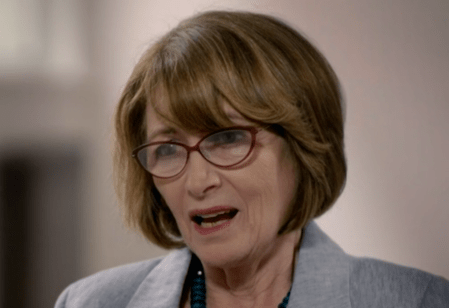
“… service, transport, public services, jobs and employment. And they wanted to talk mainly about the Middle East and particularly about the Israeli-Palestinian issue.”
21.13
[V/O] [cut to Ware listening]
“It became extremely…”
[SYNC]
“… unpleasant — people would leave the meeting in tears.”
21.23
REPORTER: JOHN WARE
[V/O] [wide shots of Liverpool, then Ben Westerman being interviewed]
“Ben Westerman received dozens of complaints. While interviewing one member he was confronted …”
[cut to wides of Liverpool]
“… with the very anti-Semitism he’d been investigating.”
21.34
BEN WESTERMAN
[V/O] [shots of the Mersey]
“We finished the interview, the person …”
[SYNC]
“… got up to leave the room and then turned back to me and said ‘where are you from?’ And I said ‘what do you mean, where am I from?’ And she said ‘I asked you where are you from?’ ”
[cut to second camera angle]
“And I said ‘I’m not prepared to discuss this’. And they said ‘are you from Israel?’ [pause] What can you say to that? You’re assumed to be in cahoots with the Israeli government.”
[cut to Ware listening]
[V/O]
“It’s this obsession with that …”
22.01
[SYNC]
“… that just spills over all the time into anti-Semitism.”
22.12
REPORTER: JOHN WARE
[V/O] [over shots of boat on the Mersey, sombre music]
“Ben Westerman’s report didn’t result in any individuals being punished but the Labour Party did change the rules about how constituency meetings were run.”
22.22
LOUISE ELLMAN
[shots of boat on the Mersey]
[V/O]
“It’s different today …”
[SYNC]
“… I don’t get the same harassment, I don’t get the same …”
[V/O] [John Ware nodding]
“… interrogation …
[SYNC]
“… but the hostility is still there.”
22.31 [blurred traffic shots through bars, sombre piano music, 4-5 seconds long]
22.36
ANONYMOUS
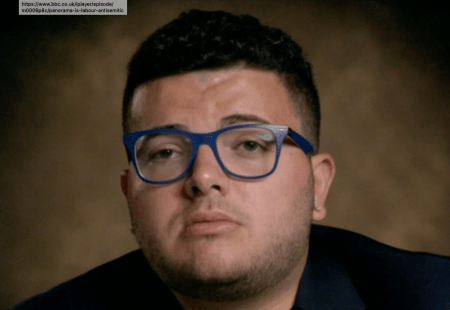
[JOSHUA GARFIELD Currently Local Government Officer for Jewish Labour Movement][V/O] [shots of Joshua Garfield looking directly at the camera]
“I first voted for Corbyn as leader in 2015. I was 20 years old.”
22.41
FTB
[SYNC]
“I may only be four years older now but I definitely feel like I know an awful lot more.”
22.46
FTB
[V/O] [cut to Joshua Garfield looking directly at the camera]
“I’ve been active in the party pretty much all my entire life.”
22.53
FTB
[SYNC]
“I’ve noticed it descend into a really, really very unpleasant and, at times, hostile environment.”
[CTB – cut to black]
23.05
[SYNC]
“And they might not call me a dirty Jew but they will call me a dirty Zionist — with pride.”
23.15
FTB
23.19
[shots of Southside, Labour HQ London, neutral music]
23.24
REPORTER: JOHN WARE
[V/O]
“In early 2018 the disputes investigation team was joined by …”
[cut to shot of Martha Robinson listening]
“… a young Labour member fresh out of university. Am I right you voted for Jeremy Corbyn?”
23.35
MARTHA ROBINSON
[V/O] [John Ware listening]
“I did in 2015, quite happily.”
23.38
[SYNC] [John Ware listening]
“And, when I started working for the party in London …”
[V/O]
“… I think that kind of sense of him coming in and him being this …”
23.45
[SYNC]
[Captioned: Martha Robinson, Administrator, Disputes Team 2018-219]

“… great progressive leader who is going to change British politics — I think that had kind of worn off a bit.”
23.51
REPORTER: JOHN WARE
[V/O] [grainy shots of Jeremy Corbyn]
“As had some of the sheen from Mr Corbyn’s reputation as a lifelong anti-racist campaigner.”
23.58
[cut to mural: Mear One, False Profits, sombre music]
“Six years earlier there had been a dispute over this mural in East London. Here the artist described the mural’s message.”
24.11
ACTUALITY
[shots of the artist painting the mural]
[Captioned: Mear One— False Profts, then Mear One, Graffiti Artist]
“I came to paint a mural that depicted the elite banking cartel known as the Rothschilds, Rockefellers, Morgans the ruling class elite few, the Wizards of Oz. They would be playing a board game of Monopoly on the backs of the working class.”
24.28
DAVE RICH
[SYNC]
“The mural is a conspiracy theory through … ”
[V/O] [John Ware listening]
“… art.”
[SYNC]
“Some of the rich old white men, these rich bankers exploiting the workers were drawn to be Jewish.”
[V/O] [over shots of the mural]
“How are they drawn to be Jewish — the artist gave them big noses. I mean this is not subtle stuff.”
24.48
REPORTER: JOHN WARE
[V/O] [shots of the mural]
“Following complaints the local council planned to paint over the mural. On the artist’s Facebook page Mr Corbyn leapt to his defence.”
[over the entry from Jeremy Corbyn which says “Why?]
“Why, he wrote, protesting against the mural’s destruction.”
25.04
MARTHA ROBINSON
[V/O] [shots of the mural]
“If it was a member of the public …”
[SYNC]
“… who perhaps wasn’t, you know, wasn’t that political, wasn’t aware of that kind of thing, I can see how a mistake could be made.”
[cut to a different camera angle]
“But I don’t believe that Jeremy Corbyn has any such excuse — because, as he says or likes to repeat, you know, constantly, he is this lifelong anti-racist who should be able to spot anti-Semitic tropes when he sees them.”
25.31
REPORTER: JOHN WARE
[V/O] [shots of the mural]
“When his defence of the mural became public in 2018, Mr Corbyn apologised saying he hadn’t noticed it was anti-Semitic because he hadn’t looked closely enough.”
25.45
[shots of the moon against dark clouds, sombre piano music]
25.50
FTB
25.51
ANONYMOUS
[REBECCA FILER Ex-Political Education Officer, Jewish labour Movement]

[V/O] [Filer looking directly at the camera]
“I received some really hurtful comments.”
25.55
FTB
[SYNC]
“I’ve seen friends of mine being reduced to tears.”
26.00
FTB
[SYNC]
“When I see or hear anything anti-Semitic in a party meeting it scares me that no one else might speak out about it.”
[CTB]
26.11
[SYNC]
“I think the leadership either don’t know how to engage fully with the topic — or don’t want to at all.”
26.24
[FTB]
26.25
REPORTER: JOHN WARE
[SYNC] [John Ware at his BBC desk]
“Mr Corbyn and his office have repeatedly said that when party members are accused of anti-Semitism they don’t interfere in the disciplinary process. Indeed, the Labour Party said any such suggestion is categorically untrue.”
[cut to photo of Seumas Milne and Jeremy Corbyn]
26.42
[V/O]
“But that doesn’t seem to be the case — in an email Mr Corbyn’s director of communications …”
[camera pulls back from Seamas Milne and Jeremy Corbyn to reveal an email with the words “… we need to review …” and “… muddling up political disputes with racism” highlighted]
“… asked for a review of the disciplinary process into anti-Semitic complaints. There was a risk, he said, of muddling up political political disputes with racism.”
27.02
REPORTER: JOHN WARE
[V/O] [night shots of Victorian-style lamp-posts in an alleyway]
“The Labour Party told us this was not a request for any kind of formal review.”
27.09
FTB
27.10
REPORTER: JOHN WARE
[SYNC] [shot of John Ware talking over Sam Matthews’ shoulder]
“How did you interpret that email …”
[V/O] [shot of Sam Matthews listening]
“… from Mr Milne?”
27.15
SAM MATTHEWS
[Captioned: Sam Matthews, Chief Investigator, Disputes Team 2017-2018]
[SYNC]
“The same way that all staff in Labour’s head office did — which is that this was the Leader’s office requesting to be involved directly in the disciplinary process.”
[change of camera angle]
“This is not a helpful suggestion, it is an instruction.”
27.32
REPORTER: JOHN WARE
[SYNC]
“But it’s framed as a suggestion?”
28.22
SAM MATTHEWS
[V/O] [over shots of John Ware, then grainy shots of Seumas Milne and Jeremy Corbyn]
“Yes, it’s all framed as a suggestion but this is not some junior staff at the Leader’s office — this is Seamas Milne, director of communications, part of Jeremy Corbyn’s inner circle. He is probably…”
27.46
[SYNC]
“… one of — if not the most — influential person within the Leader’s office and in that context when he says I think we need to review this process going forwards that isn’t a suggestion — that’s him instructing what he expects to happen, without needing to say it.”
28.01
FTB
28.02
[over night-time shots]
[Captioned: LABOUR PARTY RESPONSE]
“The Leader’s office did not intervene. These former disaffected employees sought the view of staff at the Leader’s office which was complied with in good-faith. These disaffected former officials include those who have always opposed Jeremy Corbyn’s leadership, worked to actively undermine it, and have both personal and political axes to grind.”
28.27
[night-time shots Labour HQ]
28.32
REPORTER: JOHN WARE
[V/O]
“At Labour HQ the atmosphere was becoming distinctly chilly for the Disputes Team.”
28.39
DAN HOGAN
[Captioned: Dan Hogan, Investigator, Disputes Team 2016-2018]
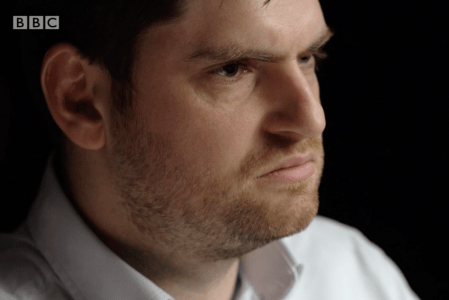
[SYNC]
“We had a really good team. We worked really closely together. We were, we all became friends through doing that job …”
[change of camera angle]
“… but there was an increasing darkness.”
[dark, night shots of Labour HQ, Southside, sombre music]
28.53
REPORTER: JOHN WARE
[V/O]
“Like his colleagues, Dan Hogan was having to adjust to the arrival of a new boss.”
29.00
DAN HOGAN
[SYNC]
“It became very apparent over the course of a few months that the Leader’s office and Jennie Formby and her team wanted us out.”
29.11
[still of Jennie Formby laughing with Jeremy Corbyn]
29.13
REPORTER: JOHN WARE
[V/O]
“Jennie Formby — their new boss — was a long time Corbyn ally, now appointed General Secretary of the Labour Party. “
29.22
REPORTER: JOHN WARE
[SYNC] [shot over Dan Hogan’s shoulder as John Ware quotes from a document]
“She said that ‘tackling anti-Semitism in the party is a central priority’?”
29.29
DAN HOGAN
[SYNC]
“It’s a joke.”
[change of camera angle]
“On a number of cases which I worked on, the people she brought in when she became General Secretary, over-ruled us. And downgraded what should have been a suspension to just an investigation or worse to just a reminder of conduct, effectively a slap on the wrist.”
29.46
REPORTER: JOHN WARE
[V/O] [out of focus shot of Jennie Formby and Thomas Gardiner, sombre music]
“One of Jennie Formby’s people was a local councillor and loyal Corbyn supporter.”
29.53
ACTUALITY
[grainy shots of Thomas Gardiner in a council meeting, captioned Camden Council]
30.03
REPORTER: JOHN WARE
[V/O] [over grainy Camden Council shots]
“We’ve been told that within days Thomas Gardiner was given a veto over which anti-Semitism complaints should be investigated.”
30.12
[blurred shots of email and pic of Thomas Gardiner]
30.13
REPORTER: JOHN WARE
[V/O] [picture of email, the words “… political oversight …” highlighted]
“This email — circulated by Mr Corbyn’s chief of staff to his key advisers — proposes giving Thomas Gardiner political oversight over anti-Semitism complaints. The Labour Party told us the email was never sent to Mr Gardiner.”
30.31
REPORTER: JOHN WARE
[SYNC]
“The Labour Party say any suggestion that Thomas Gardiner was their political overseer is and I quote ‘a malicious political attack on a party staff member by a disaffected politically hostile former employee’. But political overseer was how the staff saw him.”
[blurred footage of Southside, Labour HQ]
30.55
DAN HOGAN
[SYNC]
“Thomas Gardiner was to all intents and purposes the Leader’s office’s representative in head office. He wasn’t working there but he was carrying out their orders.”
[shots of Southside, daylight, sombre music]
31.11
REPORTER: JOHN WARE
[V/O]
“Mr Gardiner wasn’t short of work. In May last year a complaint was submitted about this image …”
[Photo of Statue of Liberty with an alien-like creature on its face and with a Star of David on its back.]
“… which had been posted online by a party member from Liverpool.”
31.23
DAVE RICH
[V/O] [over more shots of the image]
“This was an image of an alien creature clamped onto the Statue of Liberty …”
31.26
[SYNC]
“… the symbol of American freedom, with a big star of David on its back — the same Star of David that you see on Jewish prayer books, see on the walls of synagogues, that Jewish people wear on jewellery. And the meaning of this image is that the Jews are an alien creature sucking the life out of America. It’s an image that belonged in 1930s Germany.”
31.52
MARTHA ROBINSON
[SYNC]
[Captioned: Martha Robinson, Administrator, Disputes Team 2018-2019]
“It was such a shocking image and to me, and to most of us, was so clearly anti-Semitic.”
32.03
REPORTER: JOHN WARE
[V/O] [still of Thomas Gardiner, sombre music]
“But not, apparently, to the disputes team’s new boss, Thomas Gardiner.”
32.10
[V/O] [still of Thomas Gardiner]
MARTHA ROBINSON
“You know, a lot of the time he would bring up Israel …”
[SYNC]
“… and say ‘well, actually no I don’t believe this is anti-Semitic I believe this, you know, is anti-Israel or you know anti- the state of Israel’.”
32.21
REPORTER: JOHN WARE
[V/O] [still of Kayla Bibby]
“The image had been posted by this woman Kayla Bibby. She described it as ‘the most accurate photo I’ve seen all year’.”
32.31
[cut to film of Louise Ellman being interviewed]
“The complaint had been made by Ms Bibby’s MP Louise Ellman but Thomas Gardiner refused to suspend Miss Bibby against the recommendation of the disputes team.”
32.43
LOUISE ELLMAN
[SYNC]
“Well, that decision is absolutely appalling and that image screams out ‘this is anti-Semitism’.”
32.49
[cut to John Ware listening]
[V/O]
“Well, she should’ve …”
[SYNC]
“… either been expelled or immediately suspended and then expelled after that.”
32.59
REPORTER: JOHN WARE
[V/O] [more shots of the image with the words ‘blood sucking alien parasites killing America’ highlighted]
“The disputes team continued their own enquiries and learned that the image was from a far right website and was captioned ‘bloodsucking alien parasites killing America’.”
33.13
REPORTER: JOHN WARE
[V/O] [over shots of Southside Labour HQ]
“Kayla Bibby says she regrets any offence caused. Following an outcry over the original decision she is now suspended from the party. But the case highlighted the growing schism between what the disputes team regarded as anti-Semitic and …”
[cut to grainy shot of Thomas Gardiner]
“… what Thomas Gardiner and those in the Leader’s office thought.”
33.37
MARTHA ROBINSON
[V/O] [continuation of grainy shot of Thomas Gardiner]
“It was often just …
[SYNC]
“… spending day after day reading anti-Semitic comments …”
33.45
[V/O] [John Ware nodding as he listens to Martha Robinson]
“… that were made by Labour members. Then I would process them and pass on …”
[SYNC]
“… often to then given a disappointing answer from Thomas [Gardiner]. ”
[cut to different camera angle]
“He did suspend members and he did issue notices of investigations …”
33.57
[V/O] [John Ware listening]
“… but there should’ve been more suspensions.”
[SYNC]
“It just became so demoralising.”
34.03
REPORTER: JOHN WARE
[V/O] [shots of Sam Matthews listening]
“What was it like for you, the head of the unit, to have this man …”
[SYNC]
“… overseeing your work?”
34.11
SAM MATTHEWS
[SYNC]
“It was awful. It made it impossible for me to do that job in the way that that job has always been done previously.”
[change of camera angle]
“That is probably the most obvious example of how Jennie created an environment and a culture that was toxic for me and my team.”
34.28
[Captioned: LABOUR PARTY RESPONSE]
[over blurred night shots of traffic]
“It is unfair to attack staff members who cannot publicly defend themselves … It is simply untrue to say that that there were any significant number of disagreements over what constituted anti-Semitism.”
34.43
[night-time shots, trees and blurred lights, sombre music]
34.48
ANONYMOUS
[PHIL ROSENBERG
Currently Director of Public Affairs, Board of Deputies, ex-Labour councillor, Camden]
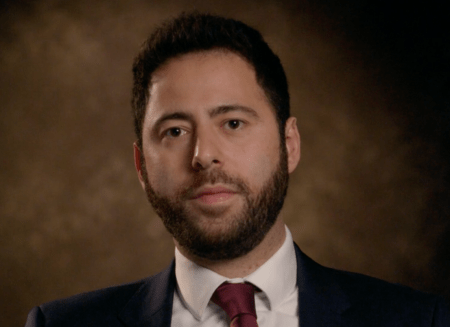
[V/O] [Phil Rosenberg looking at the camera]
“Until 2016 being Jewish was either a neutral thing or it was a positive thing: people would celebrate diversity.”
34.56
FTB
[SYNC]
“That changed decisively in my personal experience in 2016 when a local member — who I’d sat sat with in meetings for 5 years, sometimes he was a bit objectionable but never racist — compared me to a Nazi in the local newspaper.”
[CTB]
[SYNC]
35.15
“Labour isn’t now an anti-racist party and that’s the sad truth of it.”
35.20
[FTB] [sombre music]
35.23
ACTUALITY
[grainy shots of Jeremy Corbyn, captioned 2 April 2018]
JEREMY CORBYN
“I am very clear I’m not tolerating anti-Semitism in our party. ”
[cut to grainy close-up]
“We will not tolerate anti-Semitism in any form whatsoever.”
35.33
REPORTER: JOHN WARE
[V/O] [shots of Labour HQ, Southside, daylight]
“However we can reveal that a month after Mr Corbyn’s …”
[SYNC] [John Ware outside Labour’s Southside HQ]
“… solemn zero tolerance pledge, his office in Parliament and Labour’s new General Secretary here were working to extend their political influence beyond the Disputes Team.”
35.49
ACTUALITY
[very grainy shots of Jackie Walker]
“So I’m Jackie Walker.”
35.52
REPORTER: JOHN WARE
[V/O] [shots of Jackie Walker]
“Jackie Walker was a long standing …”
[cut to grainy close-up of Jackie Walker]
“… anti-racist ally of Mr Corbyn.”
35.57
[cut to photo of Jackie Walker and Jeremy Corbyn, sombre music]
“She seems to have had a blind spot when it came to anti-Semitism and had been the subject of a number of complaints.”
36.07
[cut to Louise Withers Green]
“The disputes team asked Louise Withers Green to interview Ms Walker.”
36.14
REPORTER: JOHN WARE
[SYNC]
“What was the charge that the disputes team was bringing against Jackie Walker?”
36.19
LOUISE WITHERS GREEN
[Captioned: Louise Withers Green, Officer, Disputes Team, 2017-2018]
[SYNC]
“Jackie Walker had said a number of very offensive things.”
36.25
[V/O] [cut to John Ware listening to Louise Withers Green]
“She said that the Jews were financiers …”
36.19
[SYNC]
“… of the slave trade, she suggested that Jews were unwelcoming to black people and repeatedly reiterated tropes about Jews having undue power and influence.”
36.43
[V/O] [cut to John Ware listening]
“She showed …”
[SYNC]
“… absolutely no contrition or remorse for the things that she had said.”
35.51
[blurred traffic shots, sombre music]
36.56
REPORTER: JOHN WARE
[V/O] [traffic, then grainy shots of Jackie Walker]
“The complaint against Jackie Walker had been sent up to the Labour Party’s National Constitutional Committee — or NCC — the body that has the final say over expulsions.”
37.10
REPORTER: JOHN
[V/O] [McNicol looking at Ware]
“Lord McNichol used to be the Labour Party’s General Secretary.”
37.15
LORD McNICOL
[Captioned: Lord McNicol, Labour General Secretary, 2011-2018]
[V/O] [John Ware listening to Lord McNicol]
“The NCC has been …”
[SYNC]
“… and should be completely independent from the Leader’s office or from the general secretary’s office. It’s a committee in its own right to make the decisions based on the facts and the evidence of a case.”
37.29
REPORTER: JOHN WARE
[SYNC]
“And that’s why the independence of the NCC is critical?
37.33
LORD McNICOL
“Critical. Yes and that’s why it’s stood the test of time.”
37.35
[blurred night-time shots, trees and lights, sombre music]
37.37
REPORTER: JOHN WARE
[V/O] [shots of blurred lights of traffic through bars, sombre music]
“Miss Walker was now at risk of being kicked out.”
37.40
[night sky with moon, sombre music, then shot taken through bars of night traffic]
37.45
REPORTER: JOHN WARE
[V/O]
“On 5 May 2018 …”
[cut to night-time Victorian street lamps]
“… Mr Corbyn’s closest advisers discussed how they might exercise some control over the NCC.”
37.58
REPORTER: JOHN WARE
[SYNC] [John Ware at his desk]
“This email chain, which include some of Mr Corbyn’s closest advisers, reveals what appears to have been an attempt to interfere with the selection of the NCC panel hearing the Jackie Walker case. One message from the General Secretary Jennie Formby says and I quote …”
38.16
[V/O] [cut to photo of Jennie Formby and email, with the words ‘The NCC cannot be allowed to continue in the way that they are …’ & ‘and I will also be challenging … the panel for the Jackie Walker case’ highlighted]
” ‘The NCC cannot be allowed to continue in the way that they are at the moment and I will also be challenging the panel for the Jackie Walker case’.”
38.28
REPORTER: JOHN WARE
[V/O] [Lord McNicol looking at Ware]
“So if you when you were General Secretary …”
[SYNC]
“… had been asked to talk to the NCC chair and say ‘you know what, we’ve got this anti-Semitism case coming up … I don’t want those panelists, I want these panellists’.”
[V/O] [cut to Lord McNicol listening]
“What would you say?”
38.44
LORD McNICOL
[SYNC]
“I wouldn’t.”
REPORTER: JOHN WARE
“You wouldn’t?”
LORD McNICOL
[SYNC]
“I wouldn’t, no.”
REPORTER: JOHN WARE
[V/O]
“Under any circumstances?”
38.52
LORD McNICHOL
[SYNC]
“That’s not the role of the … no, that’s not the way that the rulebook was created either the spirit or the letter of it.”
39.01
[V/O] [cut to John Ware listening]
“The emails that you’ve shown me are really important; the issues that are raised within them …”
39.06
[SYNC]
“… should ring alarm bells across the party. ”
[V/O] [cut to John Ware listening to Lord McNicol]
“To try to interfere …”
39.13
[cut to John Ware listening to Lord McNicol]
“… politically within the NCC is just wrong.”
39.16
[grainy shots of Jeremy Corbyn speaking at meeting]
39.18
REPORTER: JOHN WARE
[V/O]
“That’s something that as Leader Mr Corbyn should have known and acted on because this entire email chain was copied to his private email address.”
39.29
[over blurred night traffic shots]
39.31
[Captioned: LABOUR PARTY RESPONSE]
“The emails … are simply about ensuring the NCC is held accountable for the length of time they take to hear cases and about protecting the party against any successful legal challenge on the basis of perceived bias if the same panel is used in high profile cases”
39.48
REPORTER: JOHN WARE
[SYNC] [at his desk]
“It’s not clear what came of these discussions. When Jackie Walker’s case eventually came before the NCC earlier this year they did expel her. What Ms Formby’s email …”
[V/O]
[cut to shot of Jennie Formby]
“… does suggest is that she knew that what was being contemplated was dubious.”
40.10
[shot of Jennie Formby, the email and the words ‘I’ve permanently deleted all trace of the email.’ & ‘Too many eyes still on on my Labour address’ highlighted]
[V/O] [voiced by female narrator, not the same person who narrates Labour Party responses]
“I’ve permanently deleted all trace of the email. Too many eyes still on on my Labour address.”
40.16
[shots of Jennie Formby at conference]
40.18
REPORTER: JOHN WARE
[V/O]
“The Labour Party told us that Jennie Formby temporarily stopped using her party email because of concerns a political opponent had access to it.”
40.29
REPORTER: JOHN WARE
[SYNC] [outside Labour HQ]
“But Mr Corbyn’s office have been directly involved in investigating individual anti-Semitism complaints. I’ve been told that last summer there was a secret instruction from the Leader’s office to transfer batches of anti-Semitism complaints files by hand from party headquarters here …”
[V/O] [Southside shots]
“… to the Leader’s office, half a mile down the road in Parliament …”
40.55
[SYNC]
“… for assessment by his aides — flatly contradicting once again Mr Corbyn’s insistence that the complaints process is wholly independent of his office.”
41.08
[blurred night traffic shots]
[Captioned: LABOUR PARTY RESPONSE]
“It has always been the case that the Labour party, like any organisation, occasionally seconds staff to do alternative work where there are capacity issues. This in no way contradicts … the party’s position that the complaints process operates independently of the Leader’s office.”
41.27
[night shots of Victorian-style lights, sombre piano music]
41.33
ANONYMOUS
[JOE GOLDBERG Currently a National Vice Chair of Jewish labour Movement]
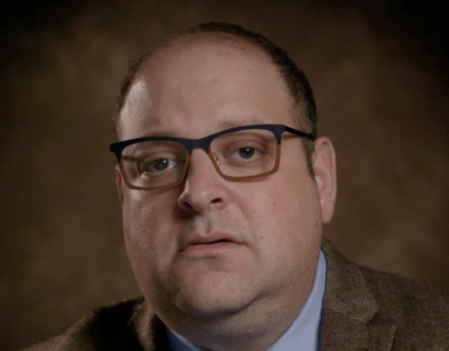
[V/O] [Joe Goldberg looking at camera]
“People were posting Nazi and openly anti-Semitic material from conspiracy websites on the constituency party Facebook’s Page.”
41.44
[FTB]
41.47
[SYNC]
“We are very frightened of what Corbyn might do. Because we have seen these behaviours before, we know what happens when people don’t speak up against things that are patently wrong.”
41.56
[FTB]
41.58
[SYNC]
“Zero tolerance just don’t apply for hatred towards Jewish people.”
42.03
[FTB]
43.05
[SYNC]
“I think that sends a very clear signal to Jewish members of the party you’re not really welcome here, please leave.”
42.12
[FTB]
42.17
[from black screen, pans left to daytime pavement pictures]
42.19
REPORTER: JOHN WARE
[V/O]
“We’ve been told that by last spring …”
42.21
[SYNC]
“… there was still several hundred anti-Semitism cases waiting to be resolved. Now the Labour Party won’t give us precise figures although they do acknowledge the numbers have increased but they also say they’re getting through them four times faster. However, we understand that by spring — three years into this crisis – the actual number of members who’d been expelled stood at only around 15.”
42.48
MARTHA ROBINSON
[SYNC]
“That was a figure that really shocked and upset me when I read it. I think I was I think I actually was brought to tears by / with anger …”
42.57
[V/O] [cut to John Ware listening”
“… and frustration because …”
[SYNC]
“… it was just horrifying to hear that all, you know, all the work that I’d tried to do had essentially been for nothing.”
43.09
REPORTER: JOHN WARE
[V/O] [blurred traffic, daytime]
“We put the numbers of those expelled …”
[cut to shot of Andrew Gwynne being interviewed]
“… to Andrew Gwynne, the shadow communities secretary.”
43.16
REPORTER: JOHN WARE
[SYNC]
“Do you regard 15 expulsions of anti-Semites in a crisis that’s been running over three years as evidence of having dealt with this crisis?”
43.25
ANDREW GWYNNE
[SYNC]
“Well, of course there are lots of cases that are on-going as well … ”
[V/O] [cut to John Ware listening to Andrew Gwynne]
“… and, of course, there are many members who …”
43.31
[SYNC]
“… going through a disciplinary processes when you are faced with possible expulsion actually …”
[V/O]
REPORTER: JOHN WARE
“I know.”
ANDREW GWYNNE
“… leave the party before …”
43.39
REPORTER: JOHN WARE
[SYNC]
“Is 15 evidence of a party which says it is serious about dealing with anti-Semitism?”
43.47
ANDREW GWYNNE
[SYNC]
“Well, 15 fewer racists and people who hold obnoxious views I think is important …”
[cut to different camera angle]
“… but the point is, we are serious about getting shot of this problem.”
44.03
[blurred shots traffic through bars, sombre piano music]
44.07
ACTUALITY
[Captioned: Official Jeremy Corbyn Channel August 2018, grainy shots of Jeremy Corbyn, sombre music]
JEREMY CORBYN
“It’s my responsibility to root out anti-semitism in the Labour Party. I want to make it clear that any government I lead will take what ever measures are necessary to support and guarantee the security of all Jewish communities and their culture.”
44.25
REPORTER: JOHN WARE
[V/O] [grainy shots of Jeremy Corbyn entering a building]
“Jeremy Corbyn has had multiple opportunities to deliver on that firm pledge over the last three years.”
44.34
[cut to blurred shots of Shami Chakrabarti with Jeremy Corbyn]
“In June 2016 the Labour party published a report from the human rights lawyer Shami Chakrabarti. Labour says it was a thorough investigation which produced …”
44.45
[blurred shots of Shami Chakrabarti walking]
“… recommendations to make the procedures fairer, swifter and more robust. The disputes team saw it differently.”
44.55
KAT BUCKINGHAM
[SYNC]
“It was so poorly researched.”
[cut to John Ware listening]
[V/O]
“She missed the opportunity to properly engage with the community.”
[SYNC]
“She didn’t make any decent recommendations on dealing with anti-Semitism. Pitiful is the right word — I really found it impossibly disappointing.”
[Grainy shots of Jeremy Corbyn leaving home]
45.15
REPORTER: JOHN WARE
[V/O]
“One recommendation Miss Chakrabarti did make was to emphasise that people shouldn’t necessarily be judged by the company they keep. Just as well for Mr Corbyn.”
45.28
MIKE CREIGHTON
[V/O] [more shots of Jeremy Corbyn leaving home]
“Shami’s report was written in such a way …”
[SYNC]
“… that she had drawn specific red lines …”
[V/O] [john Ware nodding]
… of past history.”
45.36
REPORTER: JOHN WARE
[SYNC]
“And platform-sharing which is, of course, a very major feature of Mr Corbyn’s past, was one of those areas …”
[V/O] [Creighton listening]
“… that she avoided.”
46.33
[SYNC]
MIKE CREIGHTON
“Yes.”
[daytime blurred traffic shots, sombre music]
45.45
DAVE RICH
[SYNC]
“For someone who insists he’s such a principled anti-racist and he always opposes anti-Semitism, it is extraordinary the number of times he finds himself …”
[cut to a different camera angle]
“… alongside people who have a record of expressing views or doing things that are completely the opposite of the anti-racism he claims.”
46.06
ACTUALITY
[captioned “Reshet TV”, grainy pictures of Raed Salah, with the words ‘Allah is the greatest’ highlighted]
46.11
REPORTER: JOHN WARE
[V/O]
“In 2012 Mr Corbyn campaigned to allow a notoriously anti-Semitic preacher activist into Britain. Raed Salah had called Jews ‘the germs of all time’ and blamed them for 9/11.”
46.26
ACTUALITY
JEREMY CORBYN
[captioned April 2012, grainy shots of Jeremy Corbyn]
“And I hereby renew my invitation to Sheikh Salah to come to Parliament, meet with me, meet with my colleagues — and you will be assured of a very warm welcome. And I look forward to giving you tea on the terrace because you deserve it.”
46.41
ALAN JOHNSON
[V/O]
“At the time people were pointing out to him …”
[SYNC]
“… all the anti-Semitic speeches and sermons that Salah gave. You know what his response was? He didn’t say anything like that to me.”
[cut to different camera angle]
“Now hold on, can we possibly imagine a Leader of the Labour Party inviting an anti-black racist to have tea on the terrace of the House of Commons and then other party members saying ‘but hold on Jeremy, look at the terrible racist statements he’s made’, and the Leader doesn’t really look but says, right, he didn’t say anything like that to me.”
47.10
ACTUALITY
[grainy Jeremy Corbyn gets out of a car, sombre music]
47.14
REPORTER: JOHN WARE
[V/O]
“More recently Mr Corbyn has apologised for what he says are occasional appearances on platforms with — and I quote — ‘people whose views I completely reject’.”
47.26
DAVE RICH
[SYNC]
“Either he’s just the unluckiest anti-racist in history that he always by accident ends up on these platforms with these people or he’s there because he shares their political world, he shares their views, they’re on a platform together because they have some kind of political connection.”
47.47
[blurred daytime elections of pedestrians]
[Captioned: LABOUR PARTY RESPONSE]
“Jeremy Corbyn’s record on opposing anti-Semitism goes back decades. He has pro-actively addressed anti-Semitism within the party in direct communications to the party membership, in articles, speeches, videos and interviews.”
48.06
[shots of London traffic at dusk, not blurred, but then blurred traffic through bars, sombre music]
48.12
REPORTER: JOHN WARE
[V/O]
“Modern-day anti-Semitism has its origins in centuries-old conspiracy theories.”
48.20
ALAN JOHNSON
[V/O] [blurred traffic shots though bars, sombre music]
“The core demonology is that …”
[SYNC]
“… Jews are essentially different from non-Jews and the difference is that they’re malign, powerful and tricksy …”
[cut to John Ware listening]
” … always tricksy, behind-the-scenes, pulling the strings — their power is always shrouded and hidden.”
48.34
[SYNC]
“The new left tended to have its own form of this anti-Semitism which was that the Jews were the arch-imperialist power and this is what is filtered through into the present-day Labour Party.”
48.47
[grainy shots Jeremy Corbyn leaving home, sombre piano music]
48.50
REPORTER: JOHN WARE
[V/O] [shots of Egyptian atrocity]
“Jeremy Corbyn has himself engaged in a conspiracy theory about Israel.”
ACTUALITY
[shots of ambulances, sombre music]
48.56
“In 2012 sixteen Egyptian border guards were murdered. As the BBC reported at the time, the Egyptian government was clear jihadists were to blame.”
49.10
ACTUALITY
BBC REPORTER
[pictures of soldiers]
“In the past year there’s been growing concern that Islamist militants have gained a foothold in this restive region.”
49.20
REPORTER: JOHN WARE
[V/O] [grainy shots of Jeremy Corbyn on Iranian TV, captioned “Press TV”]
“Despite all this a week later on Iranian State TV Mr Corbyn turned up with his own highly conspiratorial interpretation of the facts.”
49.32
ACTUALITY
JEREMY CORBYN
“You have to look at the big picture — in whose interests is it to destabilise the new government in Egypt, in whose interest is it to kill Egyptians other than Israel?”
[cut to grainy close-up of Jeremy Corbyn following by an especially grainy close-up of his eyes]
“I suspect the hand of Israel in this whole process of destabilisation.”
49.53
[over blurred traffic shots]
[Captioned: LABOUR PARTY RESPONSE]
“Jeremy Corbyn’s speculation about the perpetrators of attacks on Egyptian border guards was based on previous well documented incidents of killings of Egyptian forces by the Israeli military.”
50.09
REPORTER: JOHN WARE
[SYNC]
“If Jeremy Corbyn kept the company today he kept before he became Leader …”
[cut to Dan Hogan listening]
[V/O]
“… associated with the kind of extremists …”
[SYNC]
“… that he did before he became Leader —
[cut to Dan Hogan listening]
“… would he survive a disciplinary enquiry?”
50.25
DAN HOGAN
[SYNC]
“If he was an ordinary member of the Labour Party, no.”
[cut to different camera angle]
“I don’t think he would survive a disciplinary hearing. I think he would be expelled.
50.32
[FTB]
50.34
[Captioned: LABOUR PARTY RESPONSE]
[over blurred night traffic shots]
“This is offensive nonsense… Jeremy Corbyn was subject to the same rules as everyone else. He has not done or said anything that constitutes a breach of the party’s rulebook.
50.47
[night shots of a dark railing post and blurred traffic: sombre music]
50.53
ANONYMOUS
[STEPHANE SAVARY Currently a National Vice Chair of Jewish Labour Movement]

[V/O] [over shots of Stephane Savary looking at the camera]
“We feel like we don’t belong here — and we have to do far more than anybody else to be accepted.”
51.03
[FTB]
51.05
[SYNC]
“A year ago a member of the Labour Party decided to do a video — just about me, a 45 minutes video — where he started, excuse my French, saying that I was a fucking Jew.”
51.17
[FTB]
51.20
[V/O] [Stephane Savary looking at camera]
“Once this woman told me I was a pig, a Jewish pig. “
51.24
[FTB]
51.26
[SYNC]
“You feel they single you out just because of being Jewish.”
51.32
[FTB]
51.35
REPORTER: JOHN WARE
[V/O] [grainy close-up shots of Jeremy Corbyn]
“Last August Mr Corbyn acknowledged that Labour could have handled its anti-Semitism crisis better.”
52.42
ACTUALITY
[Captioned: 5 Aug 2018, Official Jeremy Corbyn Channel]
JEREMY CORBYN
“We have been too slow in processing disciplinary cases. People who use anti-Semitic poison need to understand you do not do it in my name, or the name of my party. You are not our supporters.”
51.56
REPORTER: JOHN WARE
[V/O] [more shots of Jeremy Corbyn]
“The rhetoric is impassioned but many members are no longer convinced.”
52.03
ALAN JOHNSON
[SYNC]
“I’m still a member but I don’t think I’ll be a member if the party doesn’t get a grip on anti-Semitism.”
52.07
[cut to different camera angle]
“See, I’m someone who for two and a half years or more has been saying to other people …”
[cut to John Ware listening]
[V/O]
“… look, let’s give him space.”
52.15
[SYNC]
“And I just don’t any more. I just don’t think there’s been enough action.”
[cut to different camera angle]
“I think there’s been lying that’s gone on about the integrity of the processes, I think there’s been intervention by his own office, and he said …”
52.26
[cut to John Ware listening]
[V/O]
“… there wasn’t any intervention by his own office.”
[SYNC]
“I remain to be convinced that he’s really grasped the nettle of anti-Semitism in the party.”
52.33
[FTB]
52.35
[day shots Southside, Labour HQ, sombre music]
52.38
REPORTER: JOHN WARE
[V/O] [day shots Southside, Labour HQ, sombre music]
“We’ve spoken to more than 20 Labour Party officials including many of those at party headquarters employed to deal with anti-Semitism.”
52.46
[cut to Kat Buckingham listening to John Ware]
“One by one they left with Kat Buckingham the first of the Disputes Team to go in December 2016.”
52.57
KAT BUCKINGHAM
[V/O] [Ware listening]
“I was stuck between an angry and…”
[SYNC] [wide shot of Kat Buckingham]
“… obstructive Leader’s office and an arcane disciplinary system and I really I couldn’t stop the problem, I couldn’t hold the tide. And I felt so powerless, and I felt guilty. I felt like I’d failed, yeah, I had a breakdown.”
53.16
REPORTER: JOHN WARE
[V/O]
“Did you?”
KAT BUCKINGHAM
[SYNC]
“Yeah. I had … I quit the party with nowhere to go. Yeah, I had a breakdown.
[cut to different camera angle]
53.26
“It was too much pain from too many people.”
53.31
REPORTER: JOHN WARE
[SYNC]
“Right.”
KAT BUCKINGHAM
[SYNC]
“Not just personal, I felt keenly that there was a huge community impact …”
[change to different camera angle]
“… people felt it was okay to make people feel unwelcome in their community. And it’s not okay.”
53.45
REPORTER: JOHN WARE
[V/O] [Sam Matthews listening]
“For Kat Buckingham’s successor things got even worse as Corbyn loyalists tightened their grip on the party.”
53.54
SAM MATTHEWS
[SYNC]
“There were elements among certainly in the Leader’s office that regarded us and our team as Blairites who are working to undermine the Leader of the Labour party.”
54.04
[V/O] [Ware listening]
“And now suddenly our boss …”
[SYNC]
“… is someone who has openly accused members of my team of being politically motivated. Of not investigating complaints against Blairites but investigating against supporters of Jeremy. And …”
[change of camera angle]
“… this all created an environment and a culture that meant that the mental health of me and my team went through the floor.”
54.28
BEN WESTERMAN
[SYNC]
“I resigned the membership around the middle of 2017 — not because of any particular case — just because I was sick of reading about it. I felt that I had tried as hard as I possibly could to do my bit to fight this sickness. And to me it’s getting worse.”
54.52
LOUISE WITHERS GREEN
[SYNC]
“I knew the atmosphere was bad and I knew it was bad — it just kept just building up and up.”
[change of camera angle]
“It was, I felt a bit complicit, actually.”
55.00
REPORTER: JOHN WARE
[V/O]
“In what …? ”
LOUISE WITHERS GREEN
[SYNC]
“In the Labour Party not dealing with anti-Semitism properly.”
[change of camera angle]
“I was signed off with depression and anxiety by my doctor because I just couldn’t, couldn’t, literally couldn’t go in there any more.”
55.20
[daytime shots Southside, sombre music]
55.26
REPORTER: JOHN WARE
[V/O] [daytime shots Southside]
“In return for not having to work her notice period, Louise Withers …”
[cut to Louise Withers Green listening to John Ware]
“… Green — like some others in the disputes team — was told she’d
[cut to daytime shots of Labour HQ]
“… have to sign a non-disclosure agreement.”
55.39
LOUISE WITHERS GREEN
[V/O]
“It was really tight.”
[SYNC]
“When I first read it I wondered how on earth I’d be able to apply for jobs because it was so prescriptive in not speaking about anything that I had heard of, or happened in the Labour party.”
[cut to John Ware listening]
[V/O]
“But I won’t be able to live with myself …'”
[cut to blurred dusk shots of traffic, sombre music]
[V/O]
“… unless I speak up about the horrendous things that I know have been happening.”
55.58
[blurred traffic, sombre music]
56.02
REPORTER: JOHN WARE
[V/O] [photo of Jennie Formby, sombre music]
“Two months after Jennie Formby arrived as General Secretary, Sam Matthews
[cut to Sam Matthews listening]
“… was signed off sick.”
56.09
SAM MATTHEWS
[V/O] [John Ware listening]
“I sat at my desk …”
[SYNC]
“… thinking I can’t do this any more. I’m being asked to do things I’m fundamentally not comfortable with. The General Secretary doesn’t listen to me …
[cut to different camera angle]
“… and the thought crosses my mind as to whether I send her my resignation and then do something that nobody should ever consider.”
56.32
[pause, shakes his head]
56.34
“I actively considered considered committing suicide, walking off her roof — she has a balcony outside her office — as some way to not feel trapped any more.”
56.49
[shots of Southside, day, sombre music]
56.55
ACTUALITY
“Our next prime minister Jeremy Corbyn.”
57.02
REPORTER: JOHN WARE
[V/O]
“The party which under Jeremy Corbyn boasts of being anti-racist to its core is now the subject of a statutory inquiry by the Equalities Commission into whether it has become institutionally racist.”
57.18
REPORTER: JOHN WARE
[V/O]
“Do you think Mr Corbyn is …”
[SYNC]
“… anti-semitic?”
[Pause]
57.24
MIKE CREIGHTON
[SYNC]
“I’ve been asked that a number of times and you can tell from my pause that it’s still a question I struggle with.”
57.32
ANDREW GWYNNE
[SYNC]
“I don’t believe that Jeremy Corbyn is anti-Semitic.”
[cut to different camera angle]
“I know Jeremy, I’ve known him for 14 years and he is a passionate believer in equality, in ensuring that hatred and intolerance in wherever it manifests itself is tackled …”
[cut to different camera angle]
“… and challenged. And so, no, I don’t believe that Jeremy is anti-Semitic.”
57.59
ACTUALITY
[Jeremy Corbyn speaking at conference, 26 September 2018]
JEREMY CORBYN
“The row over anti-Semitism has caused immense hurt and anxiety in the Jewish community and great dismay in the Labour Party.’
[cut to audience member]
“But I hope and believe we can work together to draw a line under it.”
[cut to Jeremy Corbyn speaking]
“And with your help, I will fight for that with every breath that I possess.”
[applause]
58.21
REPORTER: JOHN WARE
[V/O] [conference applauding Jeremy Corbyn]
“Notions about Jews, their supposed power, their hidden influence and malign intent have surfaced within Labour as never before. If not Mr Corbyn, who in the party has the leadership to bury them?
58.38
End credits
[selected]
Reporter: John Ware
Production Team: Jordan Downer, Ahmed Ellal, Mark Weiss
Researcher: Callum McCulloch
Assistant Producer: Adrian Polglase
Executive Producer: Neil Grant
Deputy Editor: Karen Wightman
Producer & Director: Leo Telling
Editor: Rachel Jupp.
